The Suez Canal had been built by French engineers
back in the 1860s, with ownership shared by private French investors
and by the Egyptian king. But in 1875, because of a major financial
crisis in Egypt, the king sold all his shares to the British
government, which was very interested in the canal because it provided
a direct link between Great Britain and the British Empire in India.
Indeed, it was so important to the British that they eventually placed
themselves in the position as protector of the Egyptian government, and
would continue in that role in the decades ahead – even into the
beginning of the 1950s.
But economic hard times in Egypt at the
beginning of the 1950s had produced widespread protesting in Egypt,
leading to the dismissing of the king and his replacement by a military
council, one that would eventually be led by the very ambitious Gamal
Abdel Nasser – who took for himself not only the role of president of
Egypt but potentially the leader of the entire Arab world. After all,
the divisions of that Arab world into the (fictional) nations of Iraq,
Syria, Lebanon, Jordan, Libya, Tunisia, Algeria, etc. had been designed
by the European powers – and not the Arabs themselves – during a period
of robust Western Imperialism, mostly just before or immediately after
World War One, solely according to European power considerations.
Nasser however intended to unite that
broader Arab world into a single United Arab Republic, under his own
leadership of course. But he had a contender for this leadership
position in the form of the Prime Minister of Iraq, Nuri al-Said – who
himself had the same ambitions as Nasser, and who also enjoyed a close
working relationship with the British.
The British, now back under Conservative
Party leadership, were again attempting to maintain something of a
pivotal position in the Middle East. Thus they had set up the Baghdad
Pact in 1955, uniting al-Said's Iraq with Pakistan, Turkey, and
Britain. Nasser was invited to join, but suspected that to do so was to
undermine his own position in the Arab world to the benefit of Nuri. He
thus refused to join, and drew Egypt away from the former close
relationship it had long held with Britain. In fact at this point,
Nasser began to portray Britain as the Arab world's major stumbling
block in its quest for collective unity and Arab national pride. It
would thus not be long before British Prime Minister Sir Anthony Eden
would develop a passionate hostility towards Nasser.
At the same time, the French were growing
increasingly hostile toward Nasser for his support of the Arab
rebellion going on within Algeria (which at the time was considered an
integral part of France itself). And Israel was just as angry toward
Nasser for his support of Palestinian fedayeen and their attacks on
Israeli settlements, and for his refusal to allow Israeli ships – or
any ships supplying goods to Israel – to pass through the Suez Canal.
Consequently, by early 1956, both France and Israel found themselves
working closely together in their desire to neutralize Nasser. The
British would soon join them in this enterprise.
Meanwhile, Eisenhower's America was
focused intensely on the ongoing Cold War with Soviet Russia, deeply
concerned that the Soviets were going to make a move to insert
themselves in the heart of the Middle East. For Eisenhower's Secretary
of State Dulles, this concern to keep the Soviets contained also was
passionate, almost obsessive.
The Americans wanted to build a NATO-like
military defense organization focused on the Middle East, and like the
British had tried to entice Nasser to join, recognizing him to be of
central importance to any plan to unite the Arab world against Soviet
expansion. But when Nasser could not secure military arms purchases
from America (because of an earlier agreement among America, Britain,
and France to minimize Arab-Israeli tensions by cutting back on arms
sales to the Middle East), in September of 1955 he purchased Soviet
arms through Soviet-controlled Czechoslovakia, irritating Dulles and
Eisenhower greatly.
Soon after this, trouble also erupted
between America and Egypt over the financing of the construction of the
very expensive Aswan High Dam along the upper Nile River. This project
was deeply important to Nasser as a means of providing Egypt with both
hydroelectric power and flood control protecting farms and industries
along the Lower Nile. America had been supplying funds for this venture
with the expectation of drawing Nasser into the American political
orbit. But when in May of 1956 Nasser extended official recognition to
Mao's Communist China, this angered Eisenhower so much that he cut off
funding for the project. Eisenhower expected that Nasser would then
turn to the Soviets for financial assistance, but find in doing so that
the Soviets would not be able to grant funding equal to the loss of the
previous American support. This then should drive Nasser back into the
arms of the Americans
But instead Nasser decided in late July
of 1956 to grab the one money-maker he had at hand, the Suez Canal,
still owned by British and other foreign financial interests. This
immediately spun the diplomatic world into a round of debate as to how
to respond to Nasser's actions – in violation of a number of
international laws, but more importantly with a number of political
implications for Britain, France, Israel, and even Iraq. For instance,
Iraqi King Faisal and Prime Minister Nuri urged immediate military
action. But the British Parliament was divided between those also
wanting such action, and those who insisted that Nasser's actions did
not warrant military attack. Also the English dominions Canada,
Australia and New Zealand were very lukewarm on the idea of a military
response to Nasser. To Australia and New Zealand, the Panama Canal was
much more important to their national interests than the Suez Canal.
The French on the other hand were a bit more united (except the French
Communists) around the idea of a military countermove, for Nasser
needed to be curbed, not just for his actions concerning the canal but
for his support of the Algerian Arab nationalists who were trying to
split the Algerian Department from the rest of France (which had
millions of non-Arab Frenchmen living there, plus many Algerian Arabs
who also saw themselves as French first and foremost).
Eisenhower urged his European allies
merely to proceed cautiously in their response to the crisis, something
that upset French Prime Minister Guy Mollet, who expected stronger
support from America – especially since, out of loyalty to NATO, he had
passed up an offer from the Soviets to cease their support of the
Algerian Arab nationalists if the French were to drop out of NATO. This
weak response of Eisenhower seemed to indicate to the French that they
were going to have to respond to Nasser on their own, with or without
American support.
For the next couple of months America
held the upper hand in trying to get its allies and Nasser to come to
some kind of diplomatic solution to the crisis. Eisenhower was hoping
to mobilize the broader world opinion against Nasser as a way of
forcing him to return control of the canal to its European owners.
Eisenhower even proposed some kind of international authority
controlling this strategic canal. Meanwhile the British and the French
quietly went along with all the diplomatic maneuvering, mostly to give
themselves the time necessary to prepare themselves for a military move
on the canal (they were actually working together in their military
planning, including also Israel).
Finally, with winter coming on and with
pressure mounting from fellow members of the British Parliament calling
on the Anthony Eden Government to do something soon, the decision was
made to hit Egypt hard. With the Israelis on October 29th coming across
the Sinai Desert from the East, the British subsequently (November 1st)
attacked Egypt by air from their bases in nearby Cyprus and from navy
ships offshore from Alexandria. Then British and French paratroopers
were dropped several days later near the Canal in order to seize it
(November 5th). The Egyptians were quickly overwhelmed, their
casualties greatly outnumbering (about 100 to one) French and British
casualties. Militarily, the action was an immediate and grand success.
But politically the action was a grand
disaster. Members of the British Opposition (Labour and Liberals)
protested loudly concerning the sheer imperialism of the action. And
the move itself was not widely popular with the British public. In
fact, a huge public demonstration took place in London in opposition to
the action.
The Americans were also irritated greatly
by the action, because the British and French seizing of the Suez Canal
took place the very next day after the Soviet invasion in Hungary.
America was trying to score major diplomatic or simply ideological
points against the Soviets for their brutal crushing of the Hungarian
national spirit. But the behavior of its allies Britain and France in
Egypt looked much the same, thus undercutting deeply this diplomatic
opportunity to score huge ideological points concerning Soviet bullying
of smaller nations.
Furthermore, any support America might
have been willing to show its allies Britain and France Eisenhower knew
would merely alienate the Arab world all the more, even possibly drive
that world into the arms of the Soviet Russians.
Khrushchev, naturally, was deeply pleased
by this English and French action, because it diverted world public
opinion away from his heavy-handed move against Hungary. In fact the
early action in late October and the first days of November by the
Israelis, French, and English in Egypt helped him immensely to come to
the decision to undertake that move in Hungary. Thus it was that on the
4th of November he had sent those 2,500 tanks and 120,000 soldiers to
Budapest to crush the Hungarian rebellion.
Oddly enough, both America and Russia
brought resolutions before the United Nations Security Council calling
for an immediate ceasefire in Egypt – and for an Israeli, British and
French withdrawal from Egypt ... with both resolutions vetoed by the
British and French.3
Meanwhile, with the Suez Crisis dragging on, Eisenhower took an even
stronger stance against America's British and French allies, worried
that this event gave the Soviets the opportunity to move into Egypt as
Nasser's new friend and protector, even to come out threatening the
West with Soviet nuclear reprisals if Israel, Britain and France did
not immediately withdraw from Egypt. NATO commitments would necessarily
draw America into such a war, something that Eisenhower wanted to avoid
at all costs. Fearing just such a scenario (Eisenhower truly believed
that Khrushchev was just crazy enough to do exactly that), Eisenhower
now put huge pressure, including threats of economic reprisals, if the
British and French did not immediately pull back from the Egyptian
venture.
Facing such enormous pressure, Eden's
British Government finally capitulated, and was forced to acknowledge
what America itself demanded: British (and French) recognition that
Nasser's Egypt was indeed now the owner of their canal.
In the end only the Soviet Russians and
Nasser's Egypt gained from this event. Russia had moved quickly to pose
itself as the Arabs' best international friend. And Nasser now became
the Arab hero of the Middle East for his standing up to the European
imperialists.
America meanwhile, because of its
Israeli-Arab neutrality, gained no new advance of its position in the
Middle East through its behavior in this crisis. Eisenhower's attempt
to look like the friend of the Arabs failed to impress the Arab world,
which now looked more to the Soviets as their friend in their efforts
to get out from under European domination. At the same time
Eisenhower's heavy hand against his British and French allies weakened
tremendously the appearance of NATO as a solidly-united military front
lined up against Soviet expansion.4
And America's allies were hugely
embarrassed both at home and abroad. The whole thing was very
demoralizing to America's European allies – who were already suffering
from a deep sense of loss of national dignity.
And perhaps most importantly, it allowed
the Soviets to deflect the hostility that the world otherwise would
have felt towards the Soviets in reaction to their brutal behavior in
Hungary. Indeed, at a deeper level, it reminded the world that even
under Khrushchev, the Soviets were still a major superpower, one that
the world needed to respect in order to survive and thrive.

 French Indochina
French Indochina Stalin dies... and a workers' uprising in East Germany results (June 1953)
Stalin dies... and a workers' uprising in East Germany results (June 1953) The 1953 Iranian coup d'état
The 1953 Iranian coup d'état Khrushchev ... and the Hungarian uprising (October-November 1956)
Khrushchev ... and the Hungarian uprising (October-November 1956) The Suez Crisis (October-November 1956)
The Suez Crisis (October-November 1956) American paternalism in the Western Hemisphere
American paternalism in the Western Hemisphere  Castro's revolution in Cuba
Castro's revolution in Cuba  Sputnik – followed by a "thaw" in East-West relations
Sputnik – followed by a "thaw" in East-West relations Christian America ... as it is about to head into the 1960s
Christian America ... as it is about to head into the 1960s 





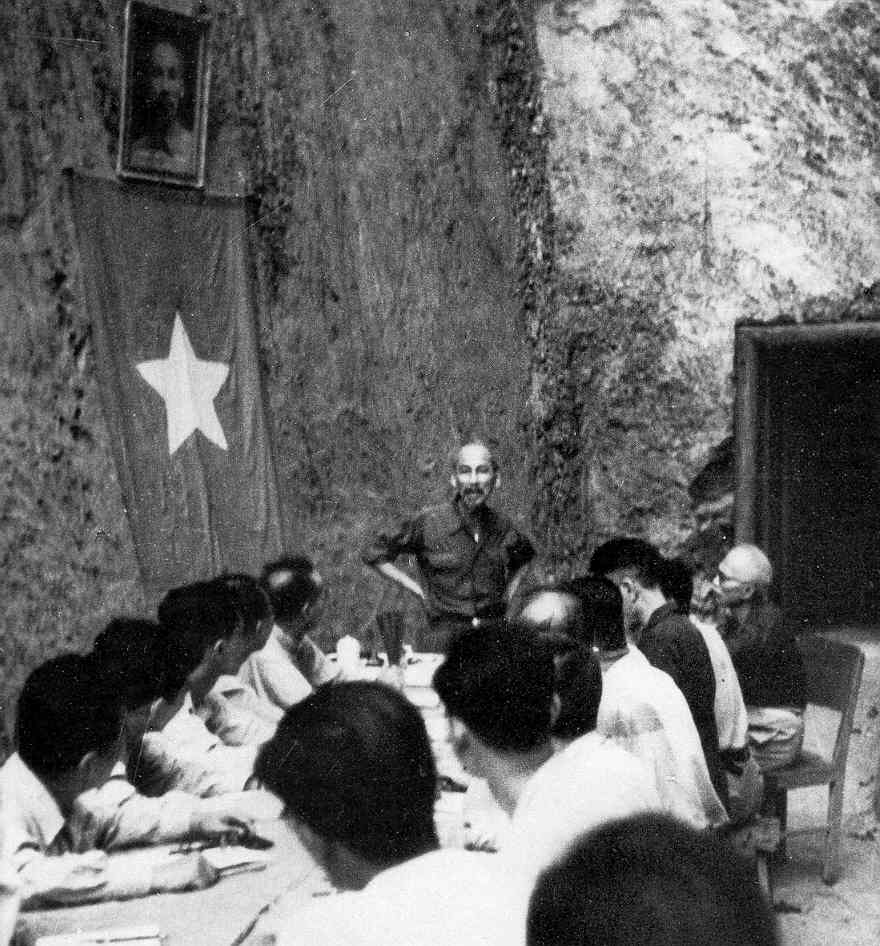
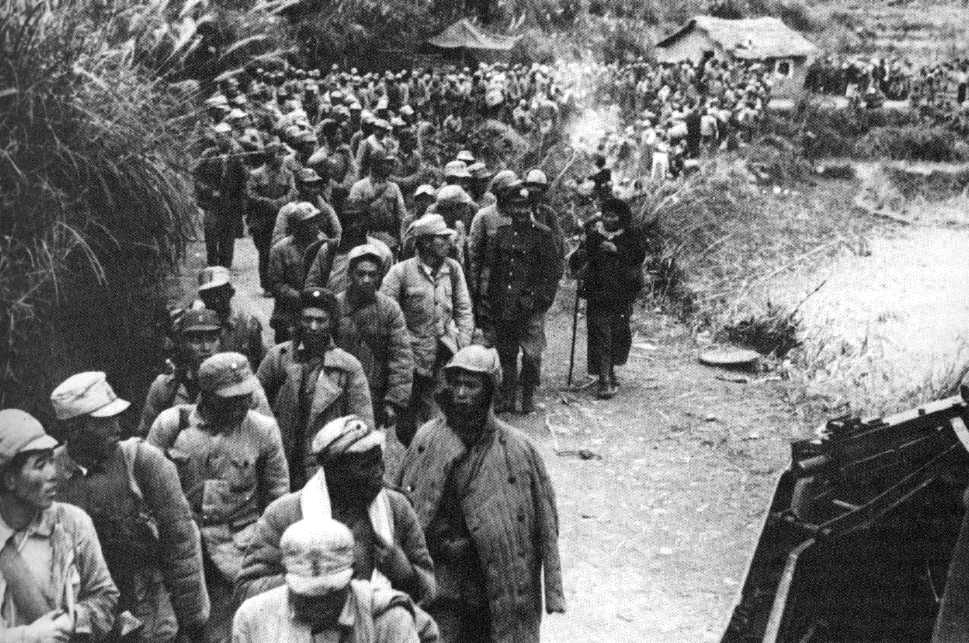
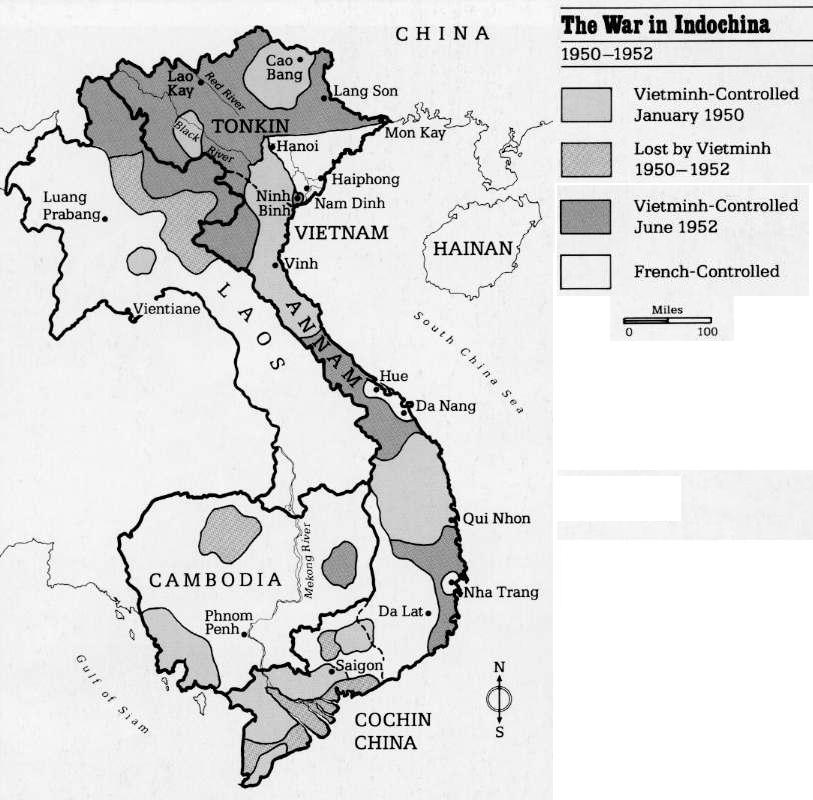
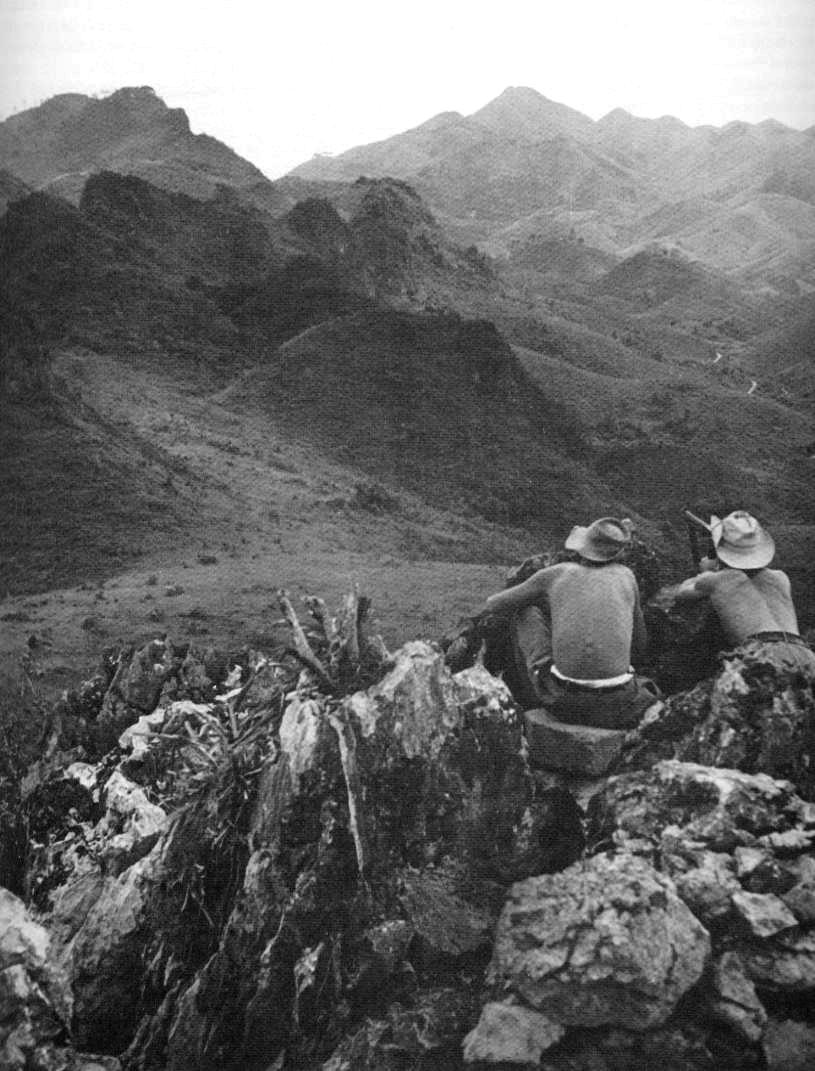
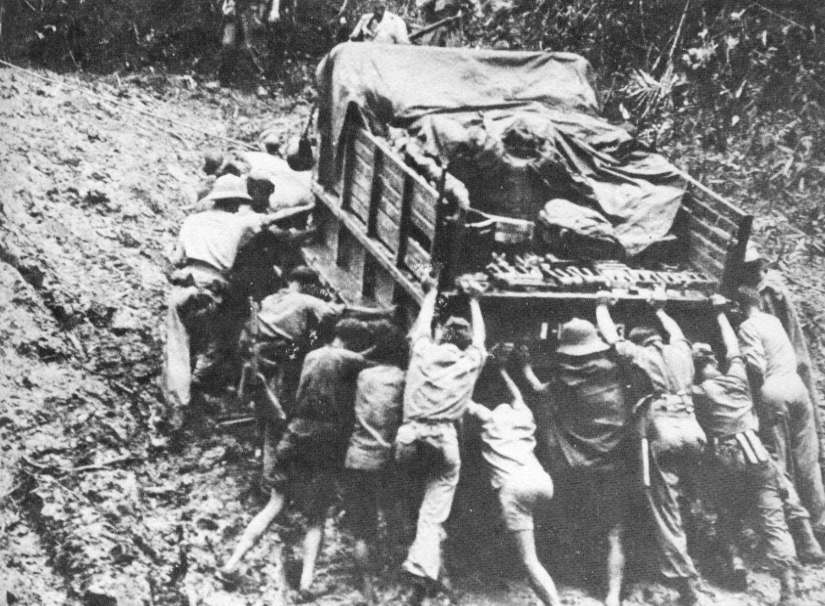
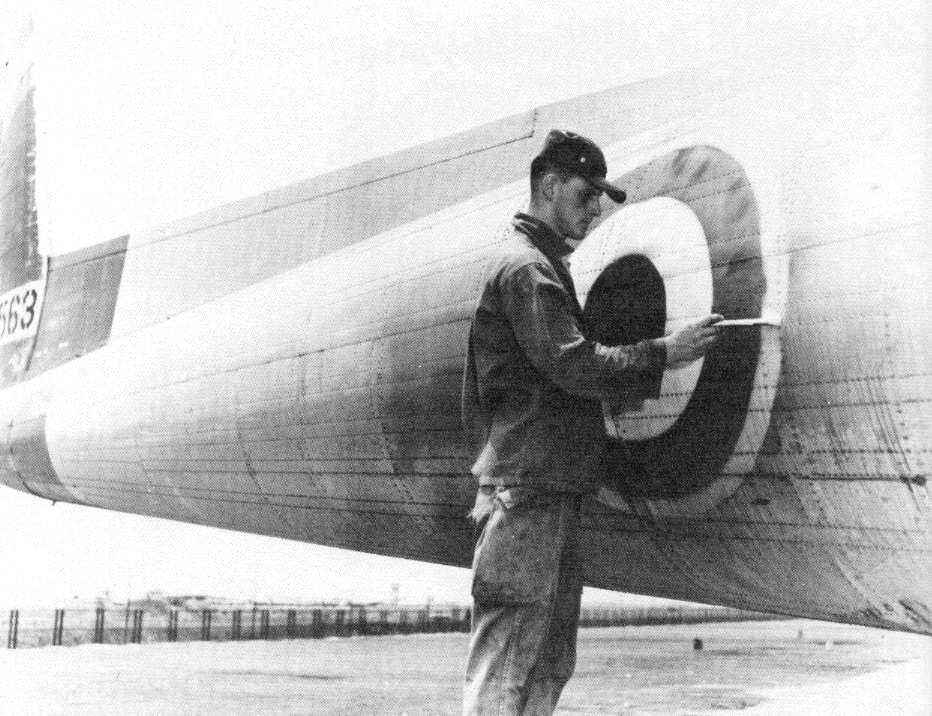
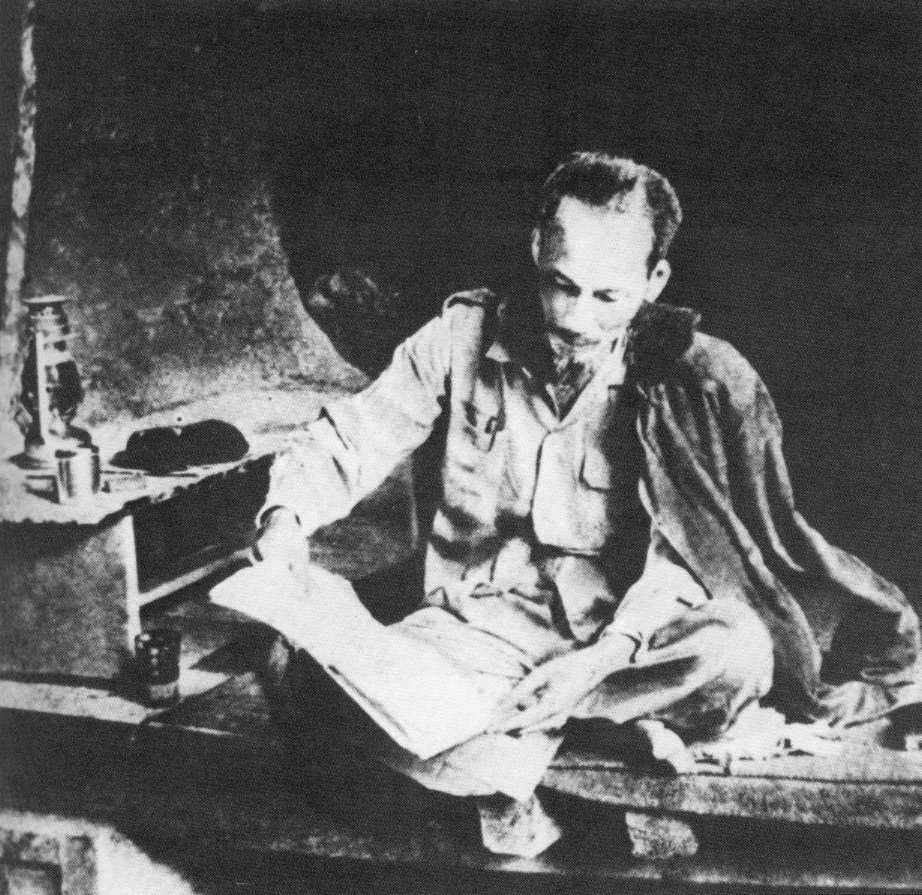
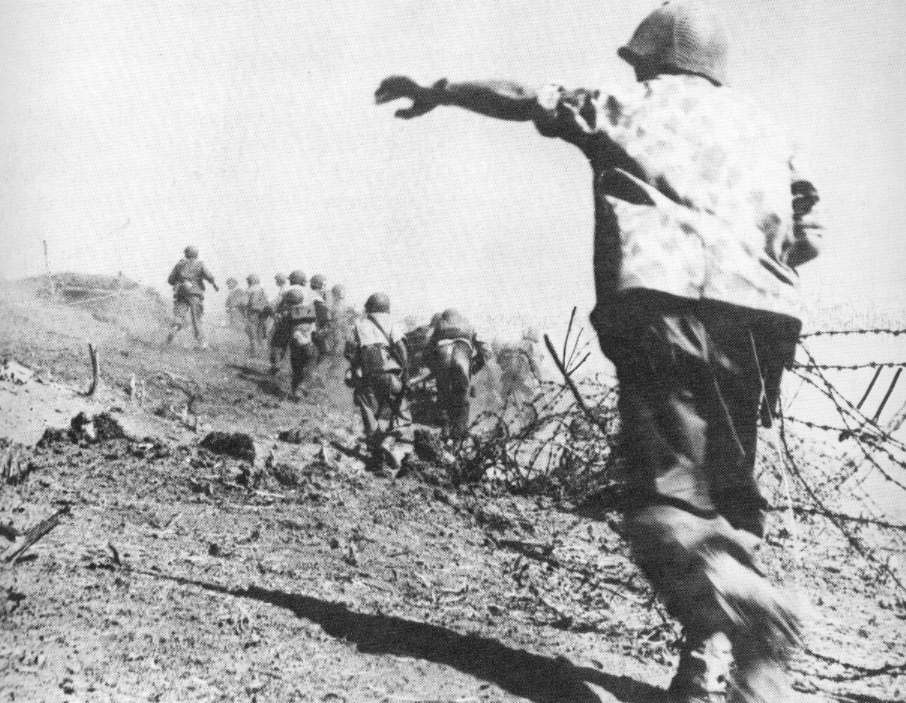
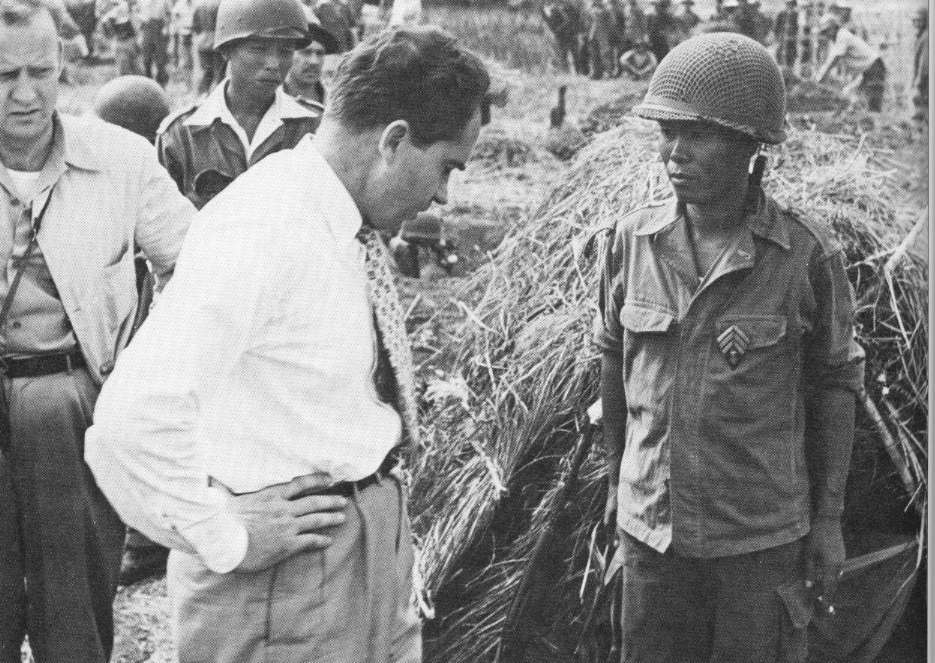
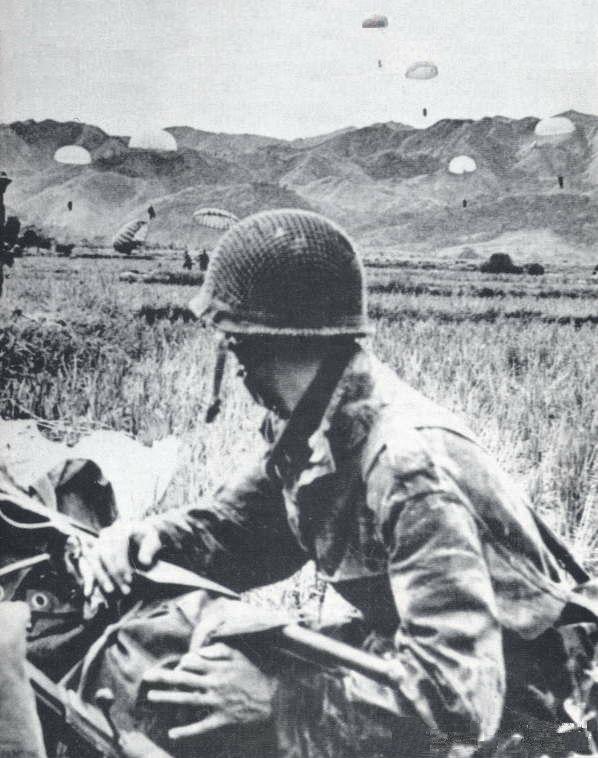
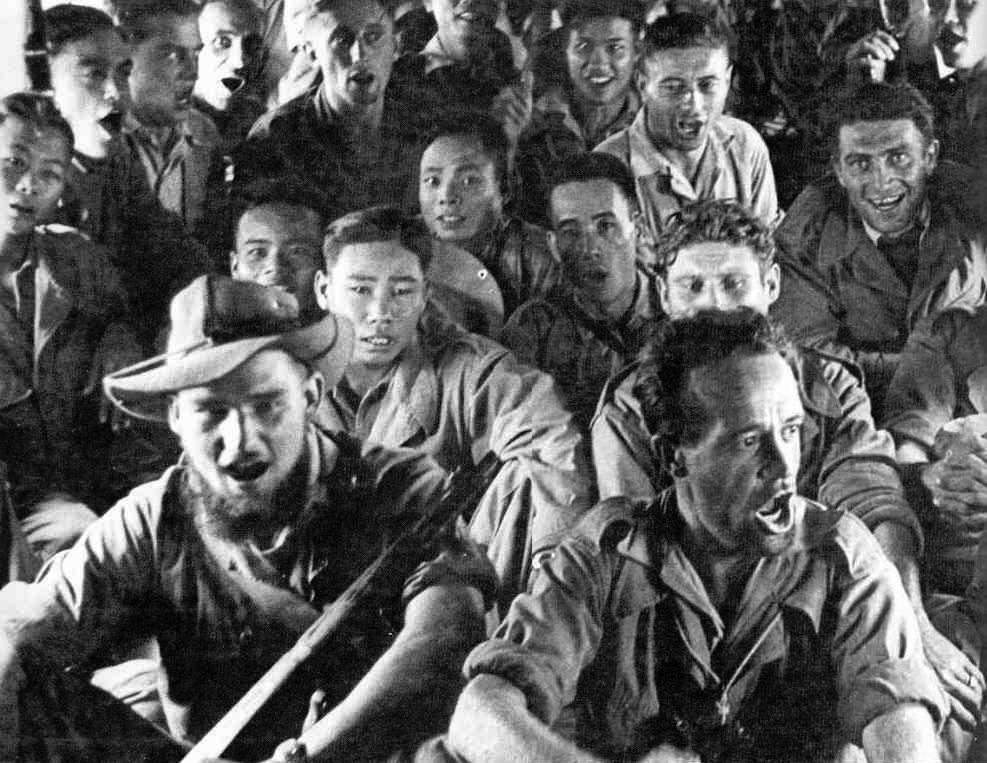
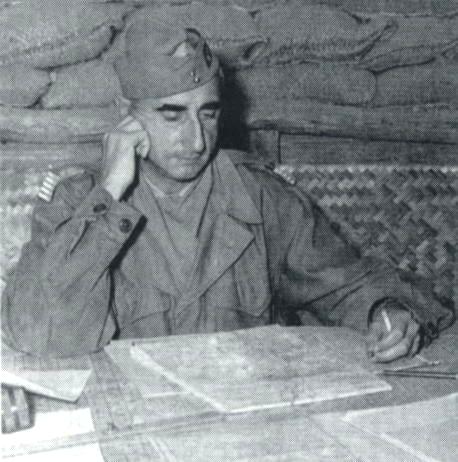
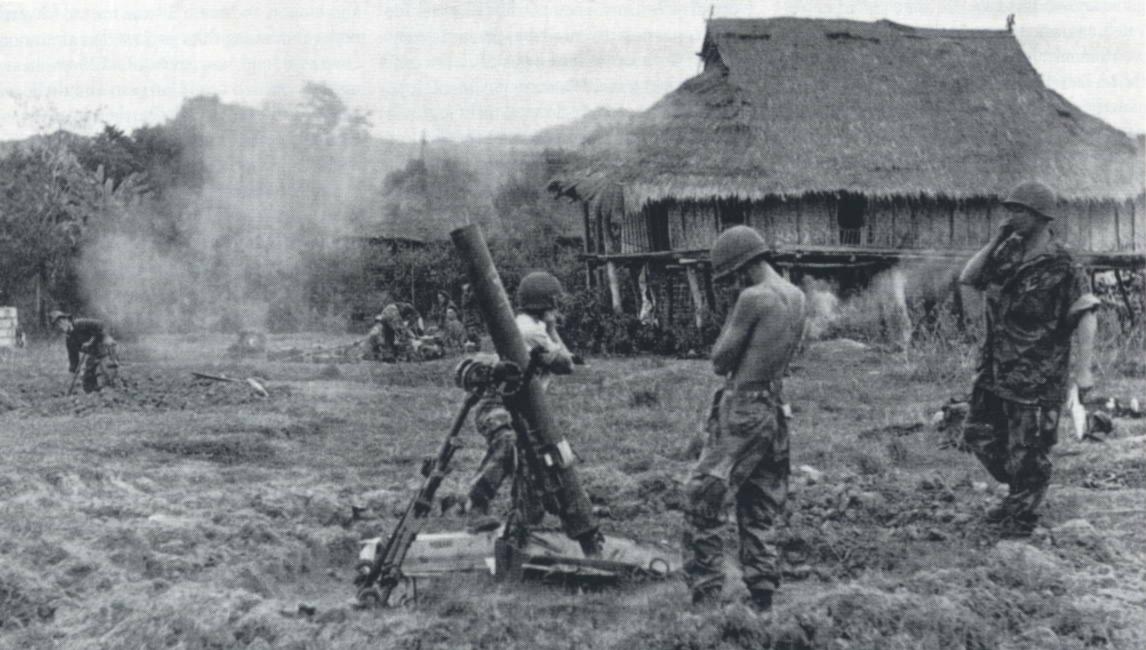
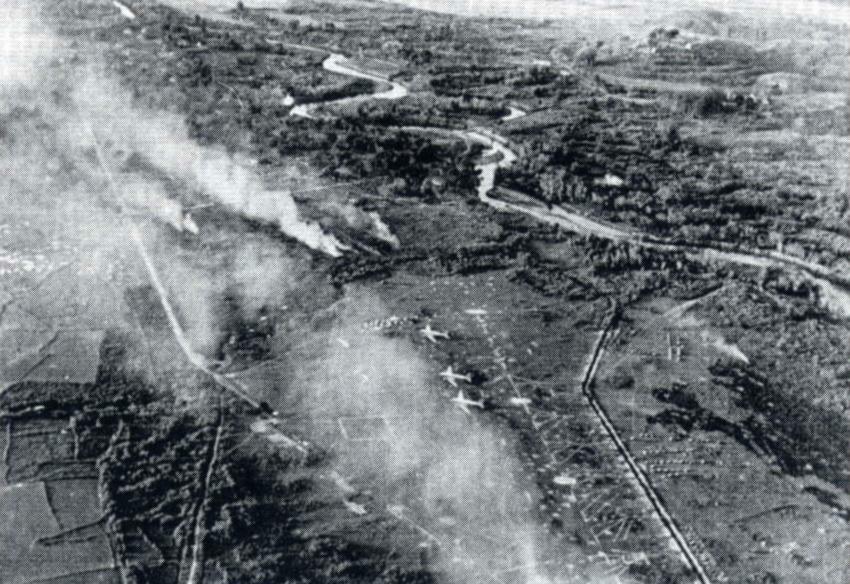
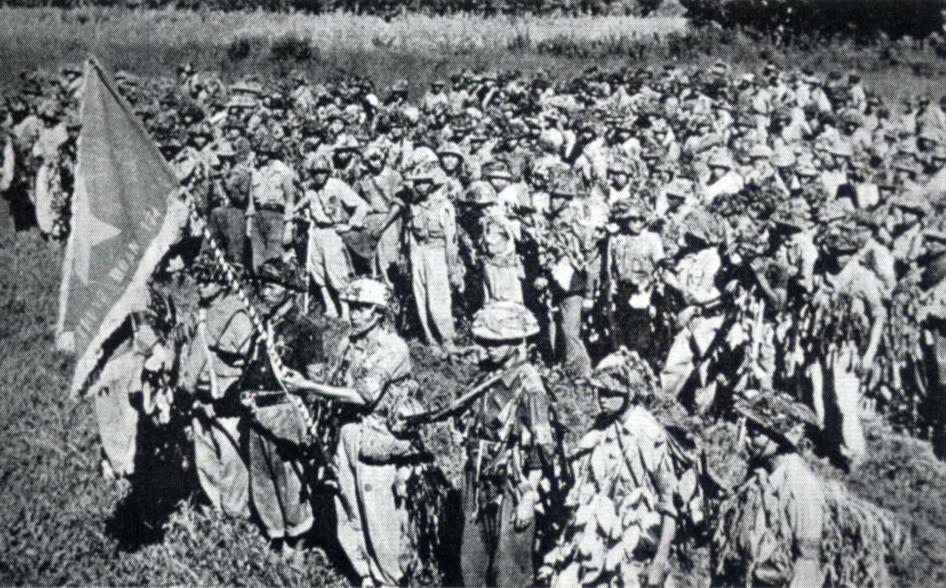
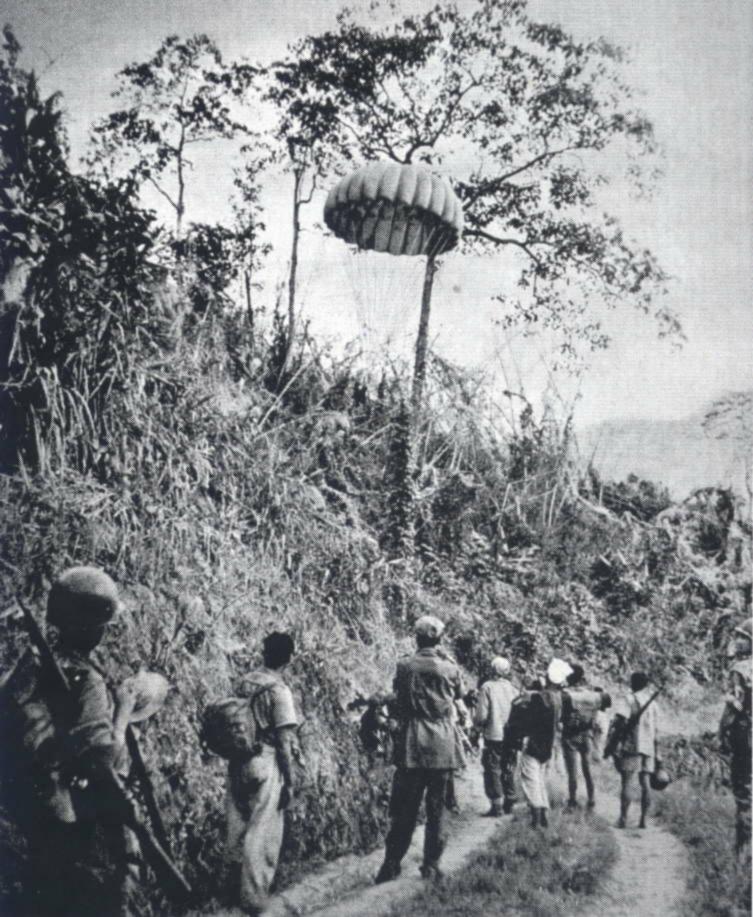
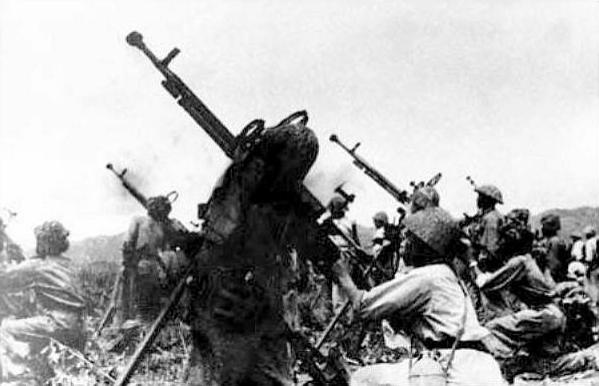
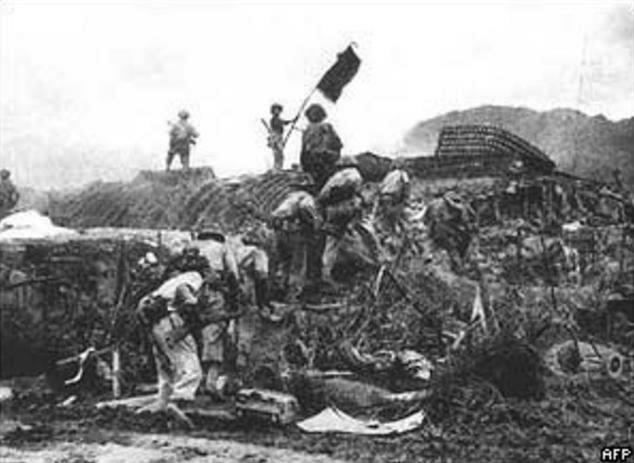
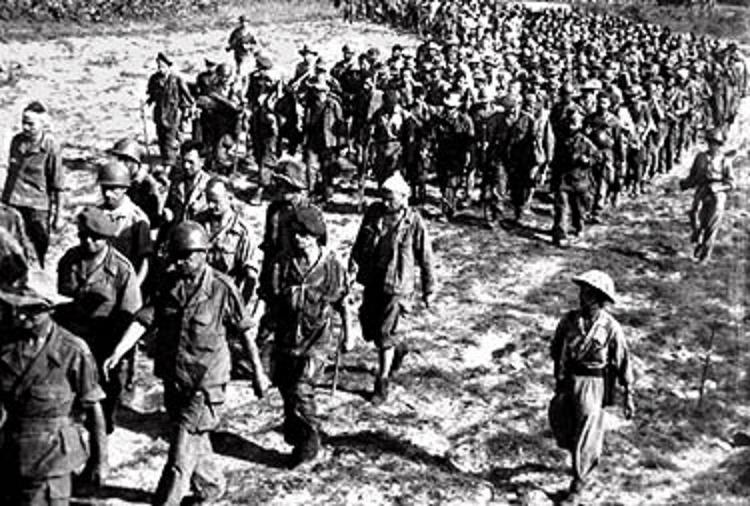
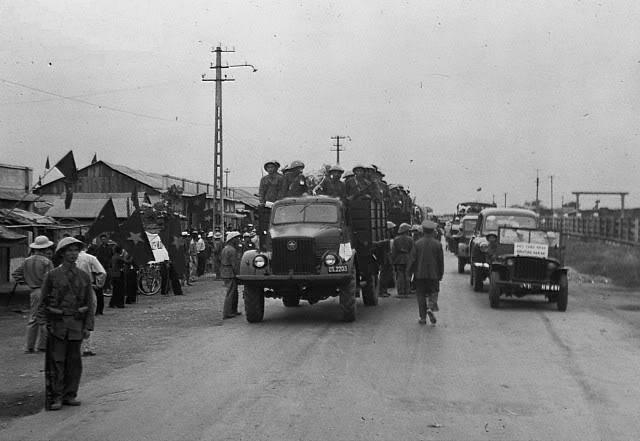
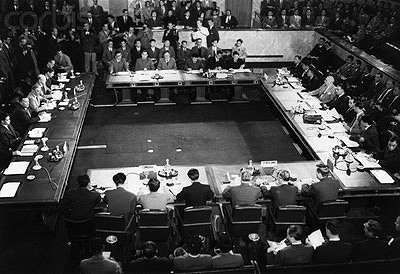
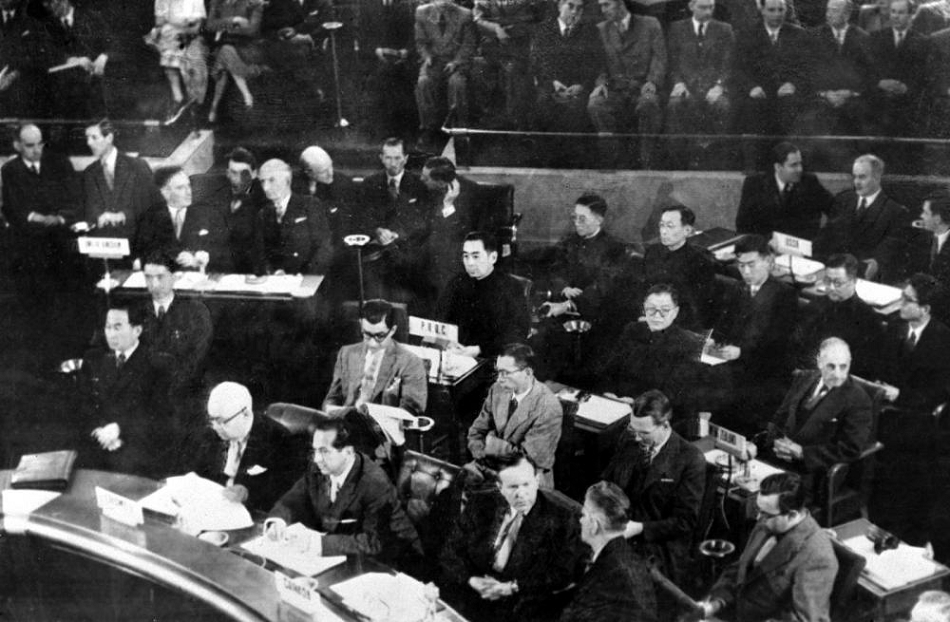
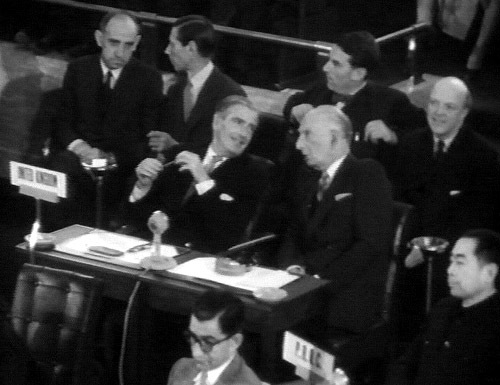
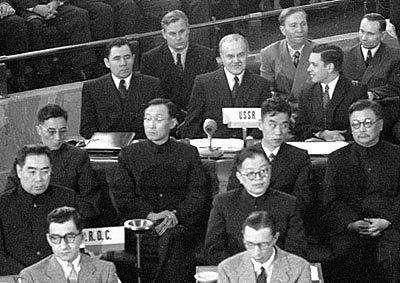
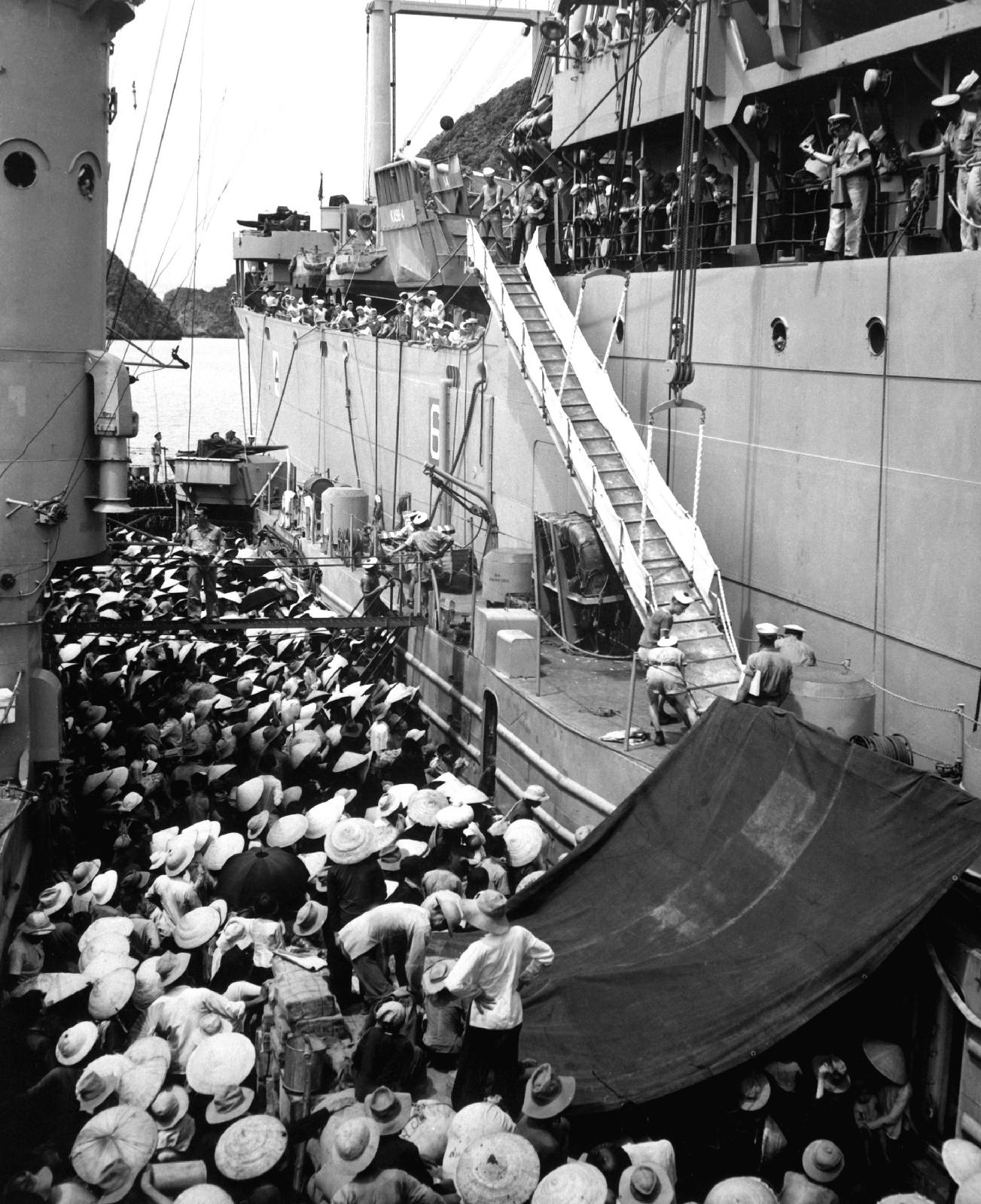
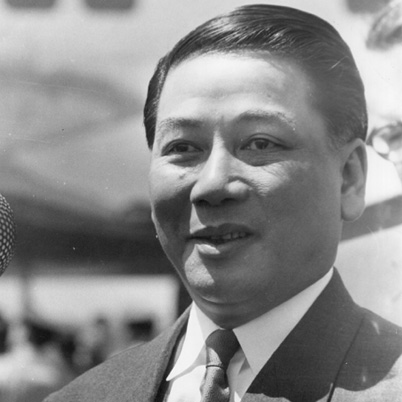
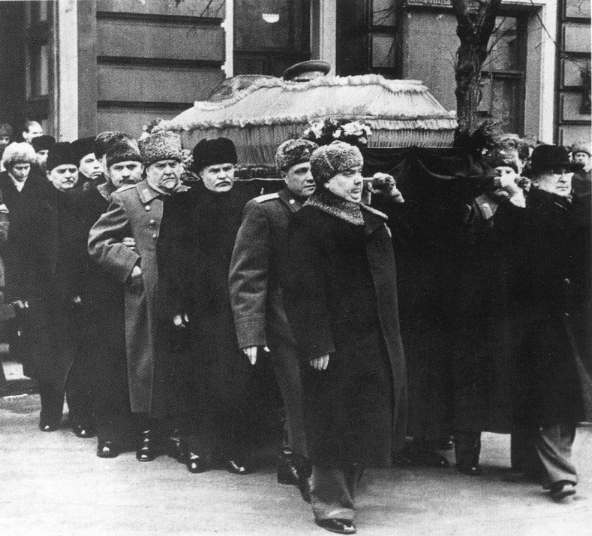
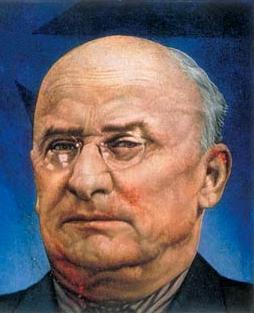
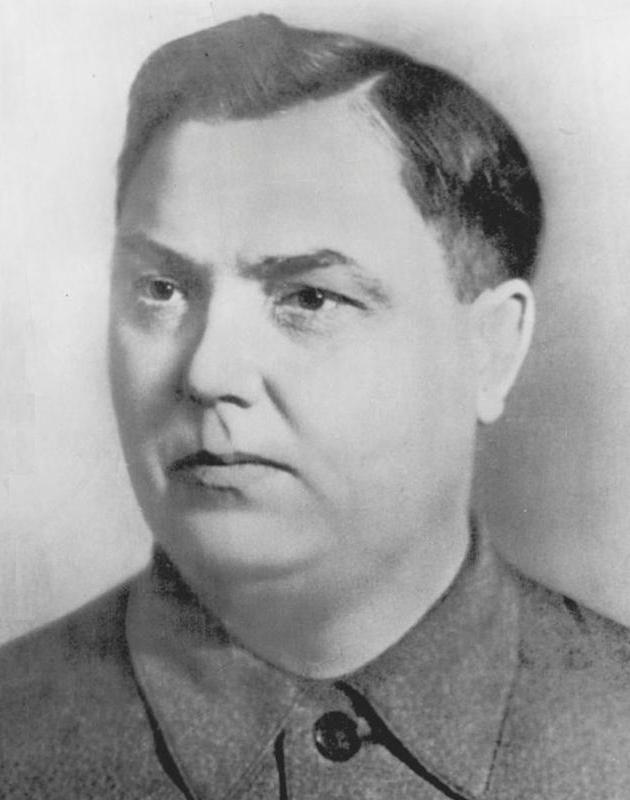

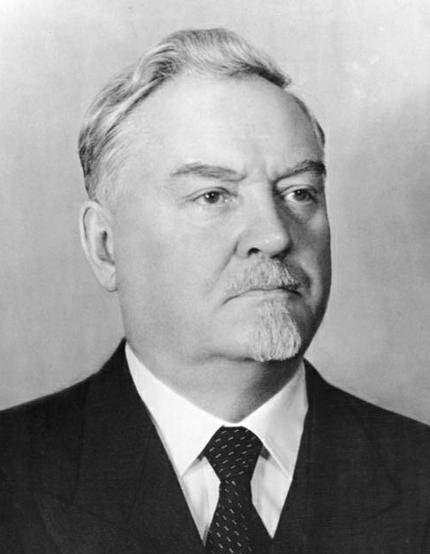
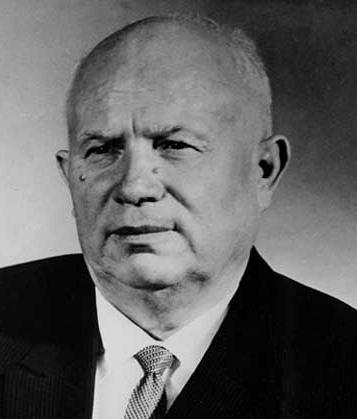
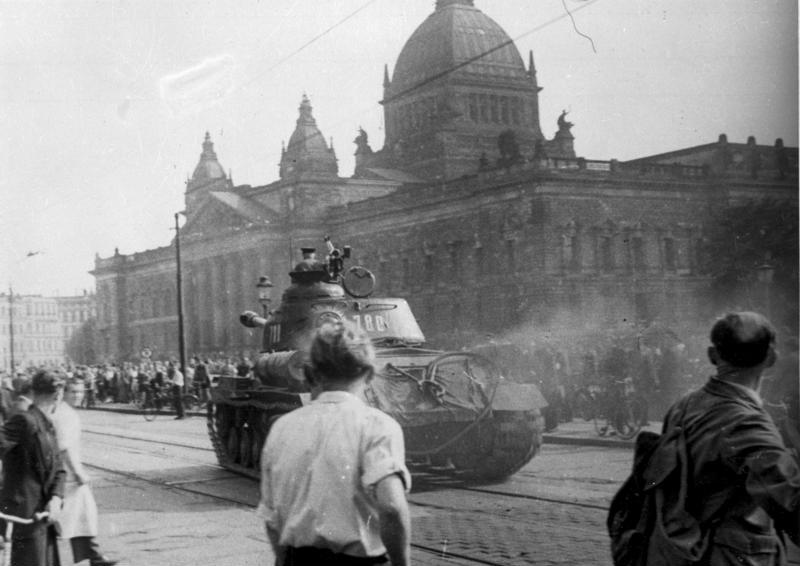
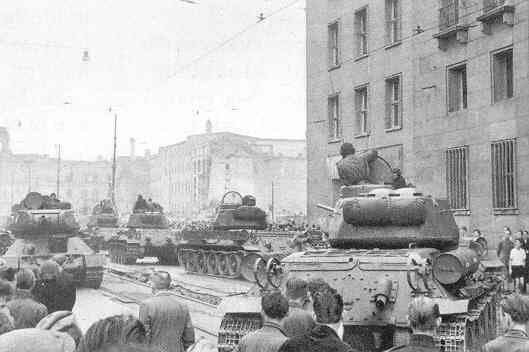
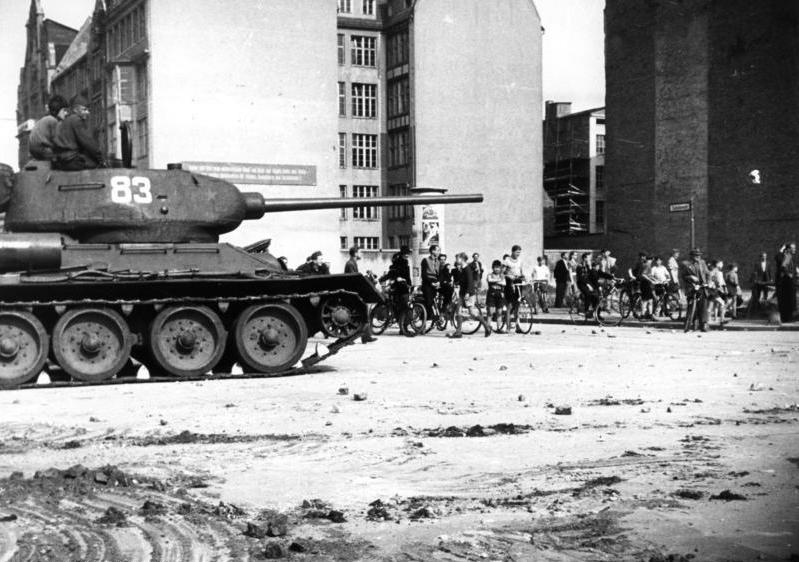
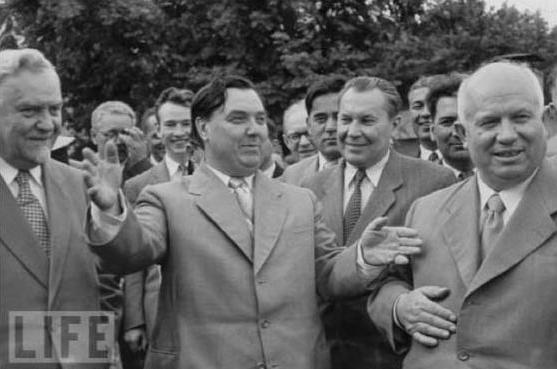

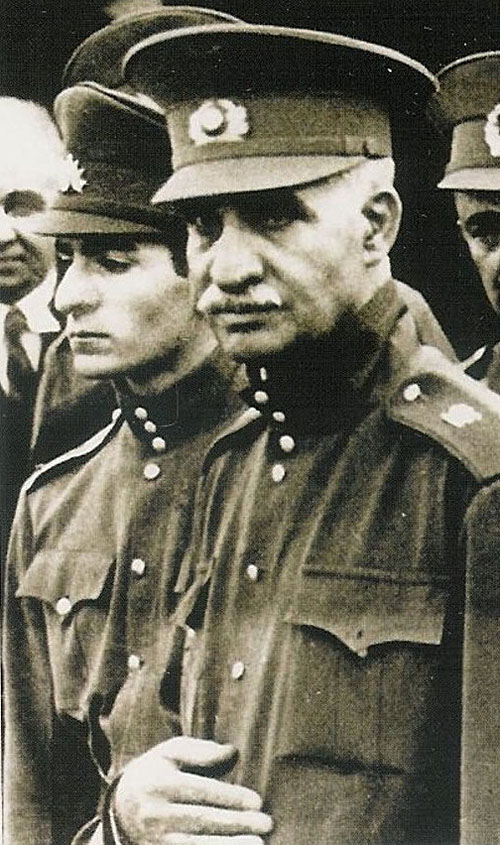
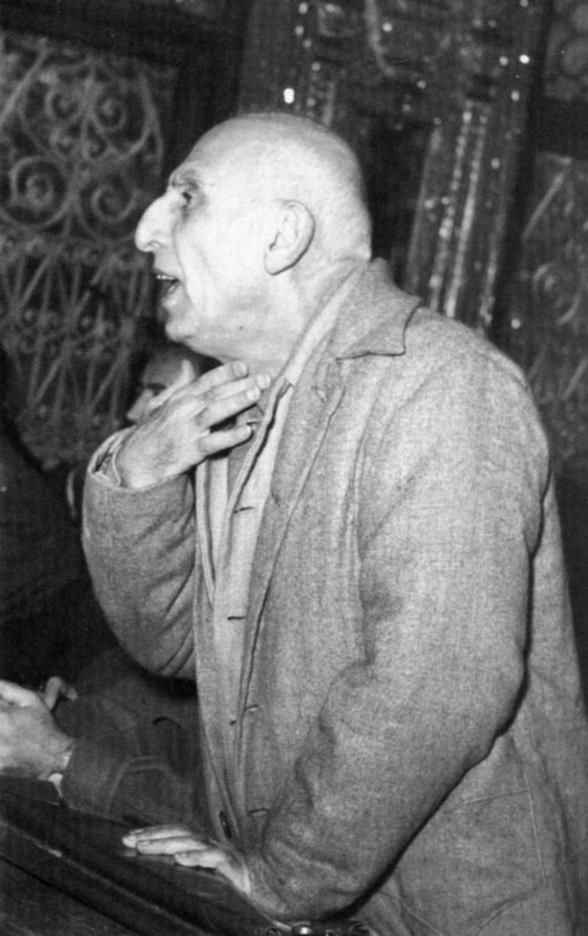
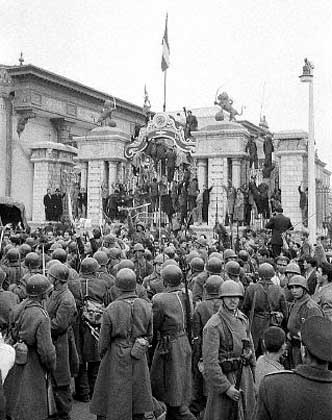
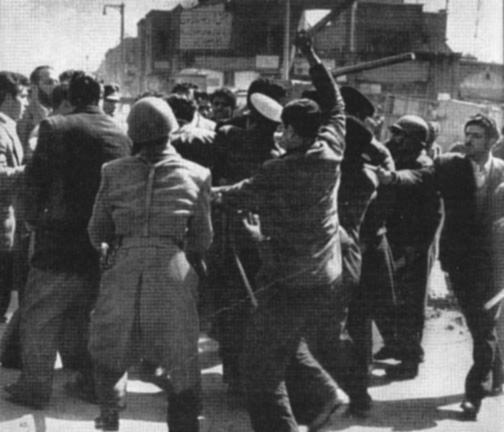
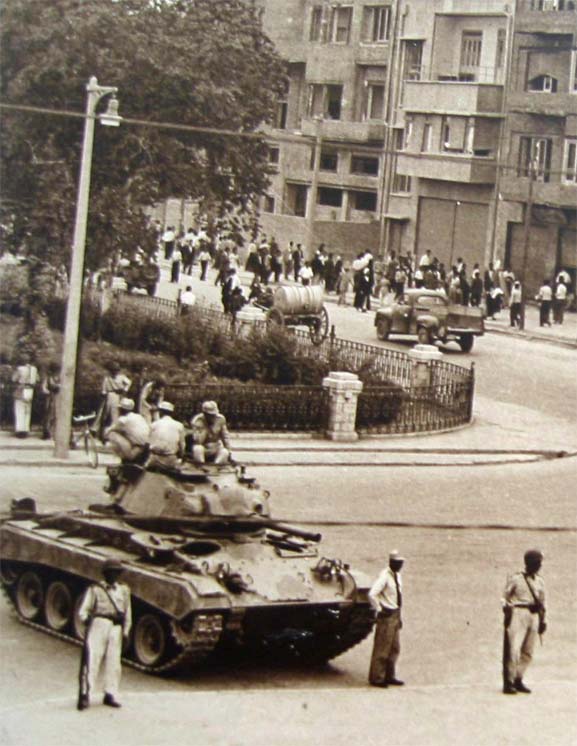
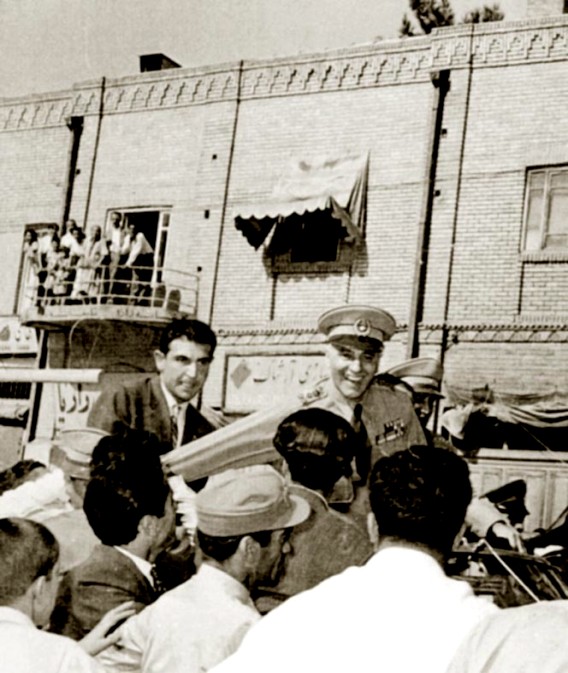
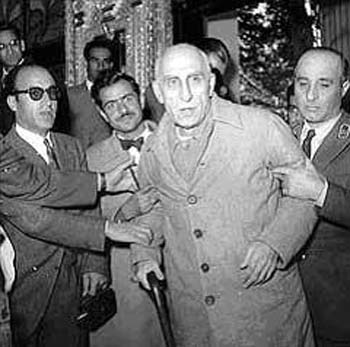
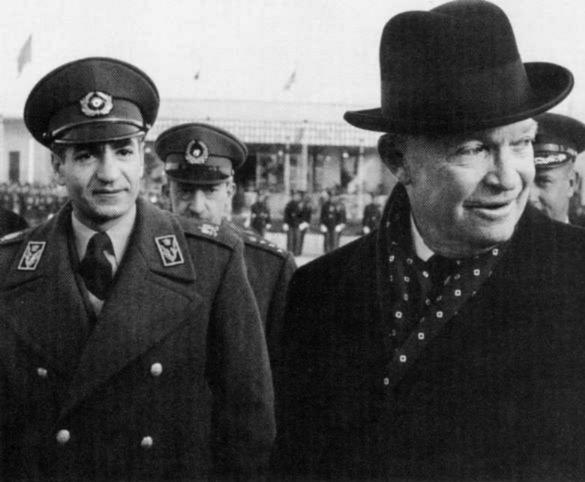
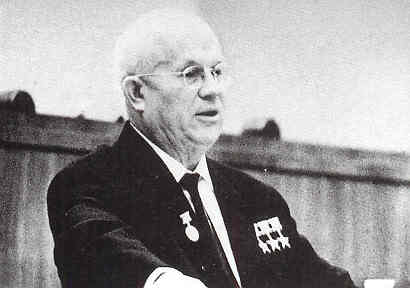
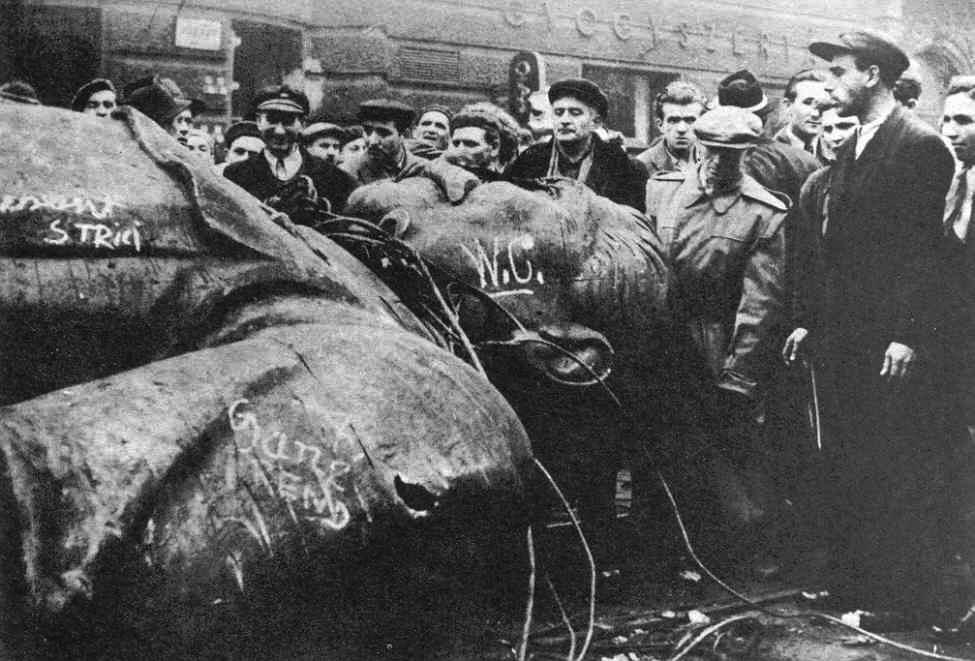
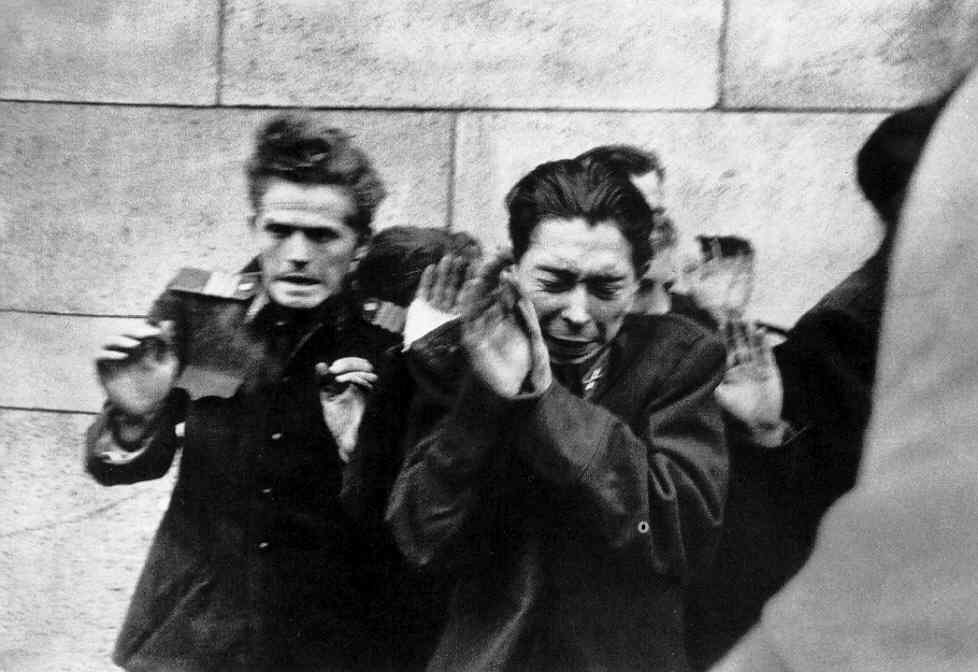
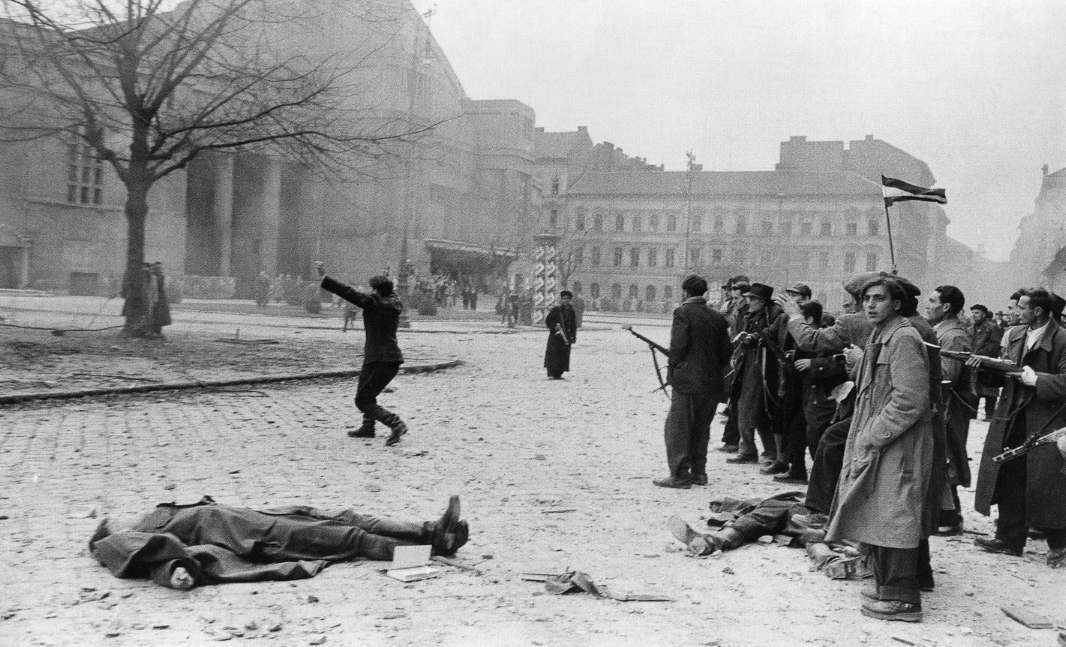
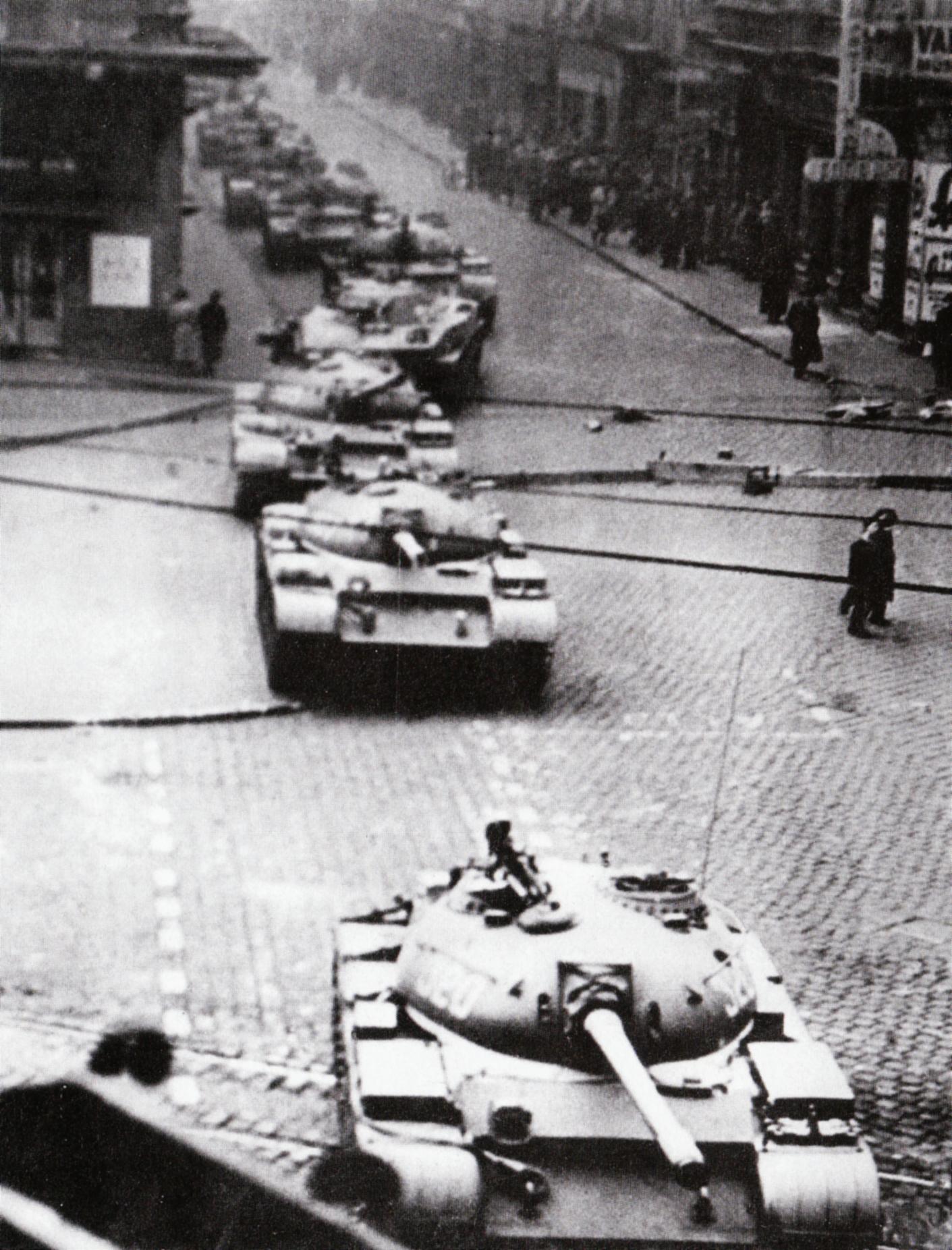
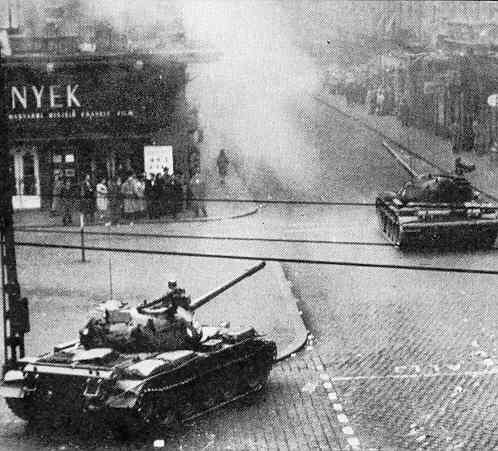
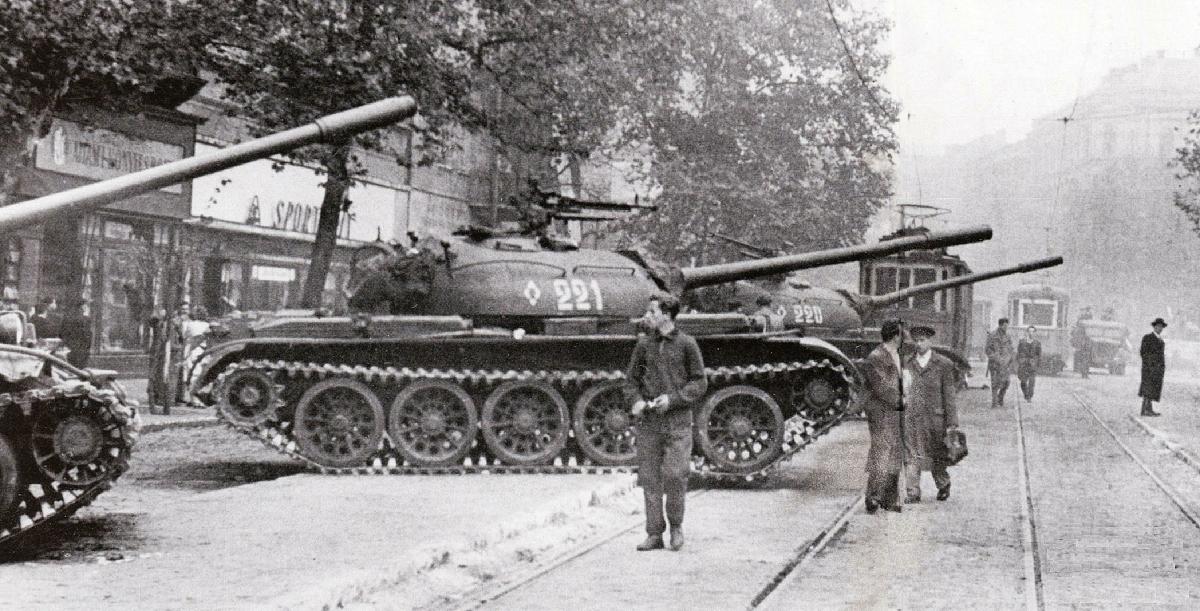
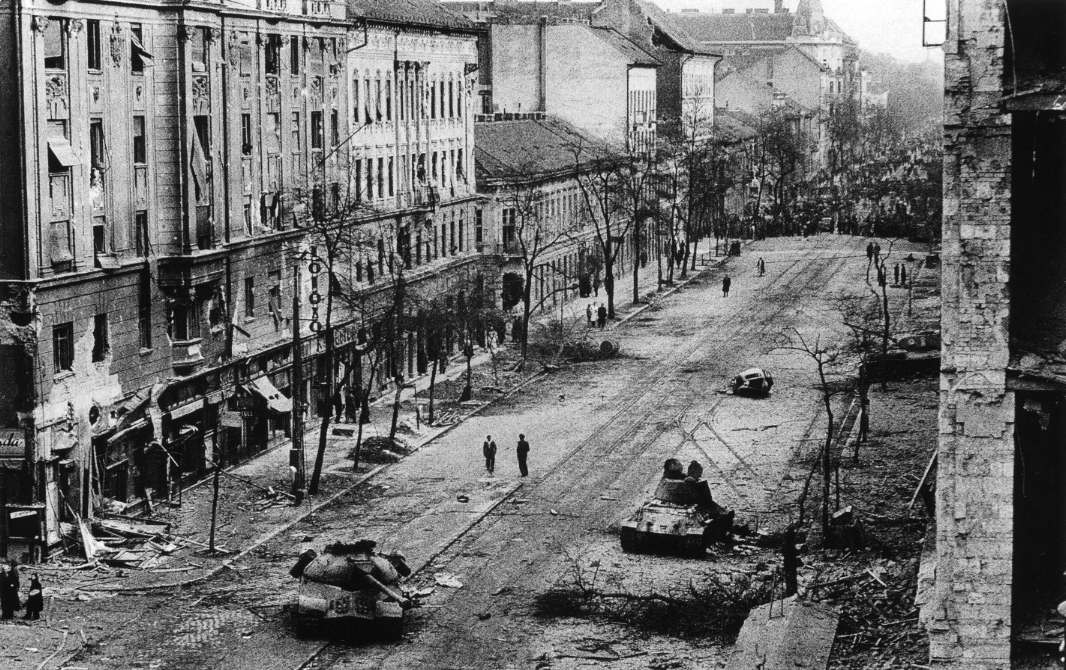
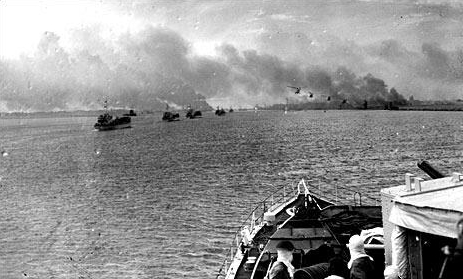
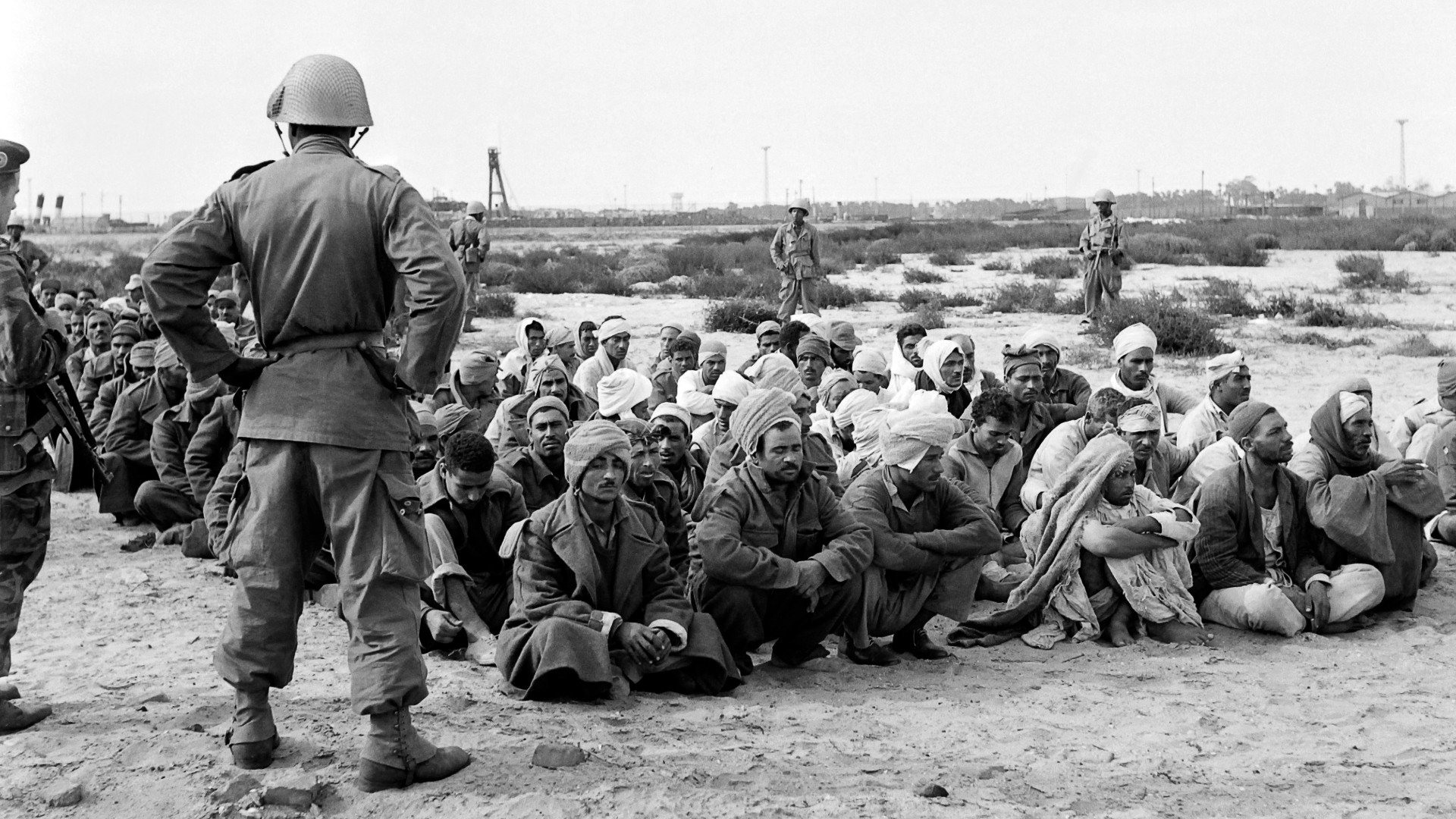
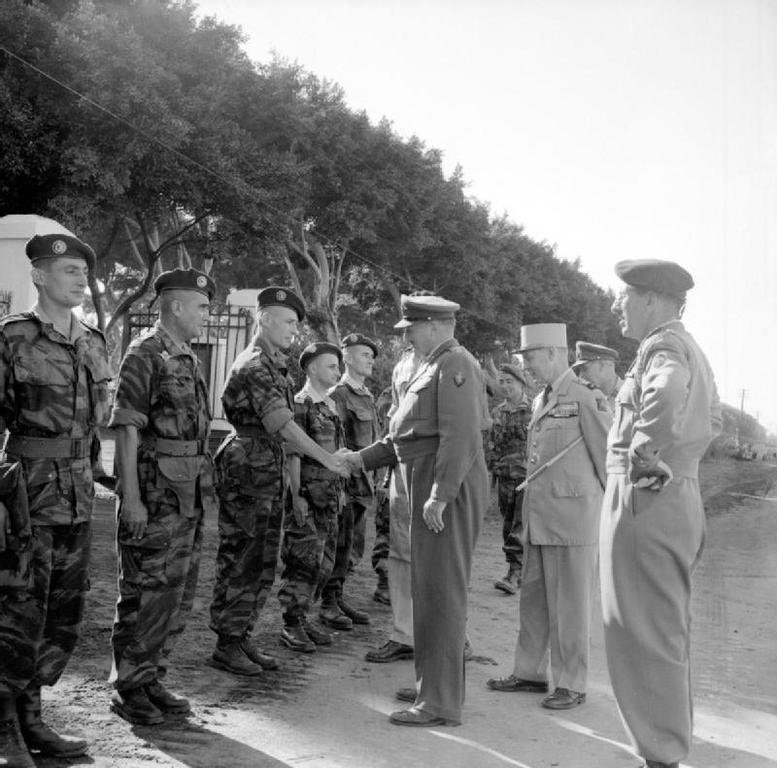
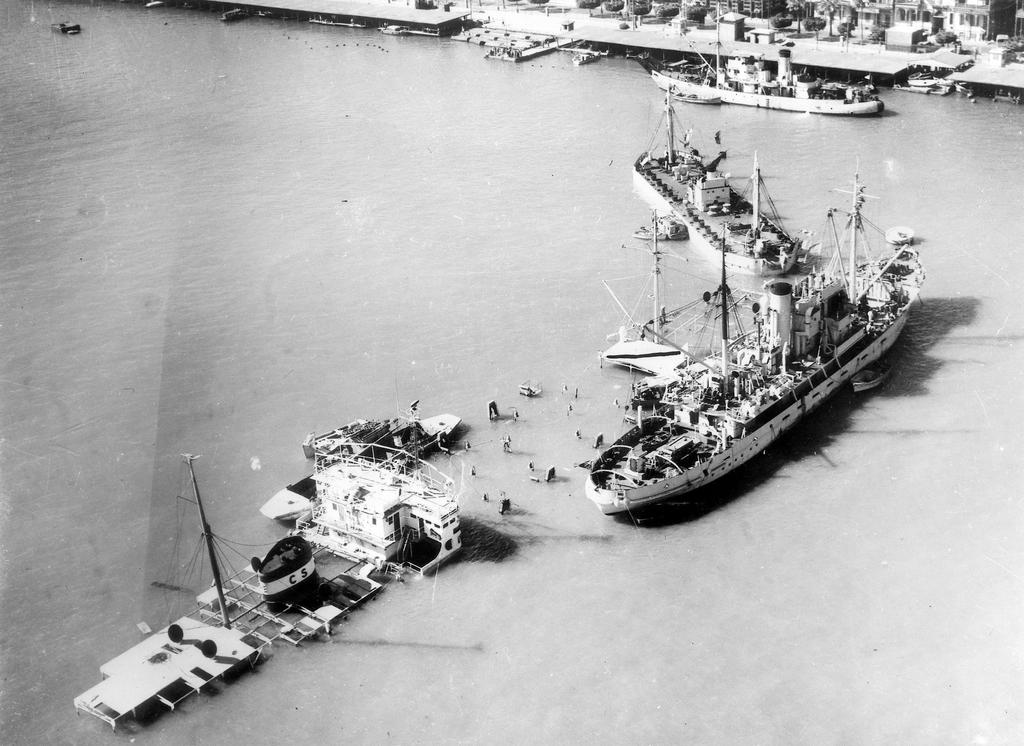
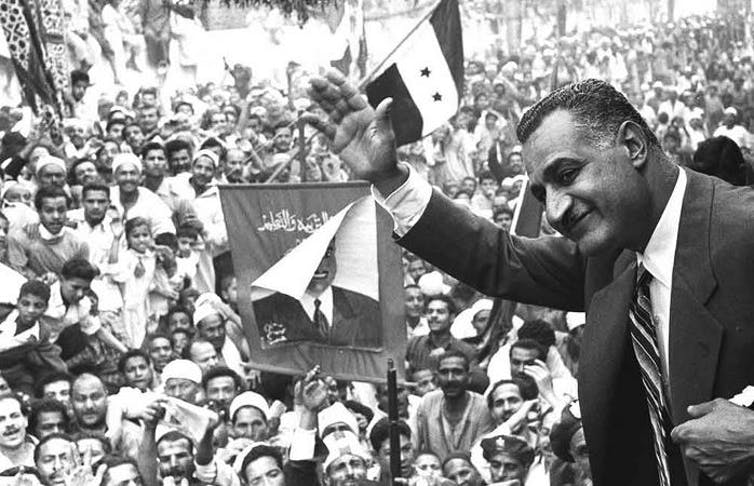
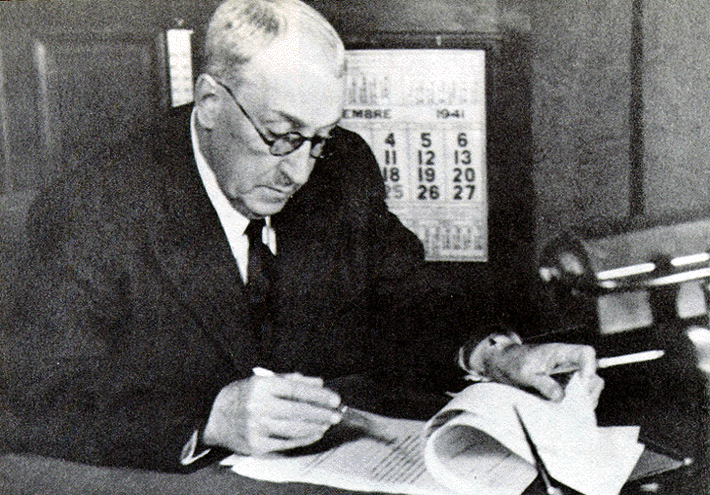
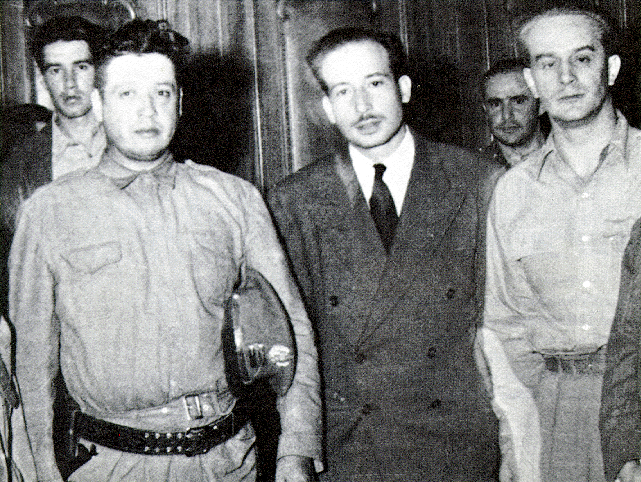
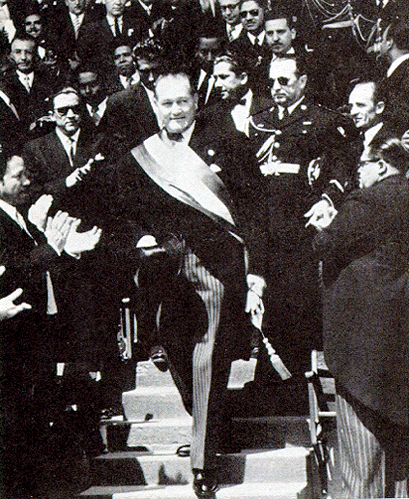
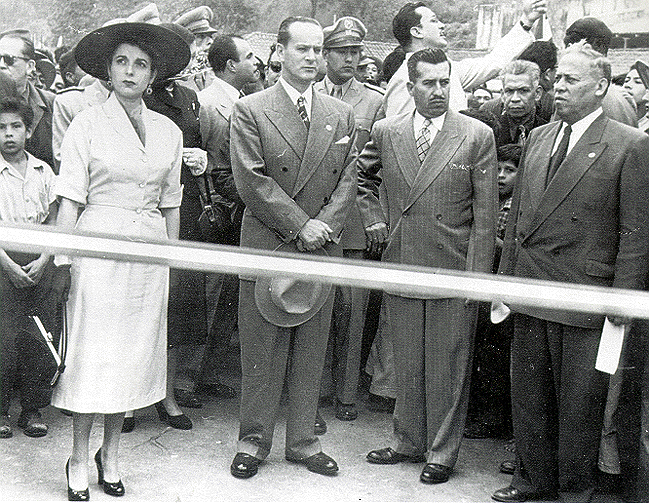
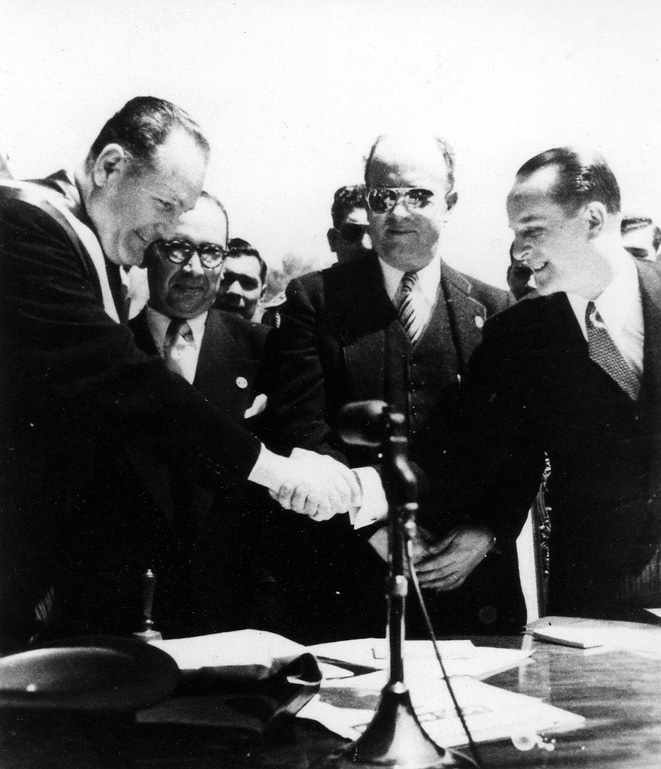
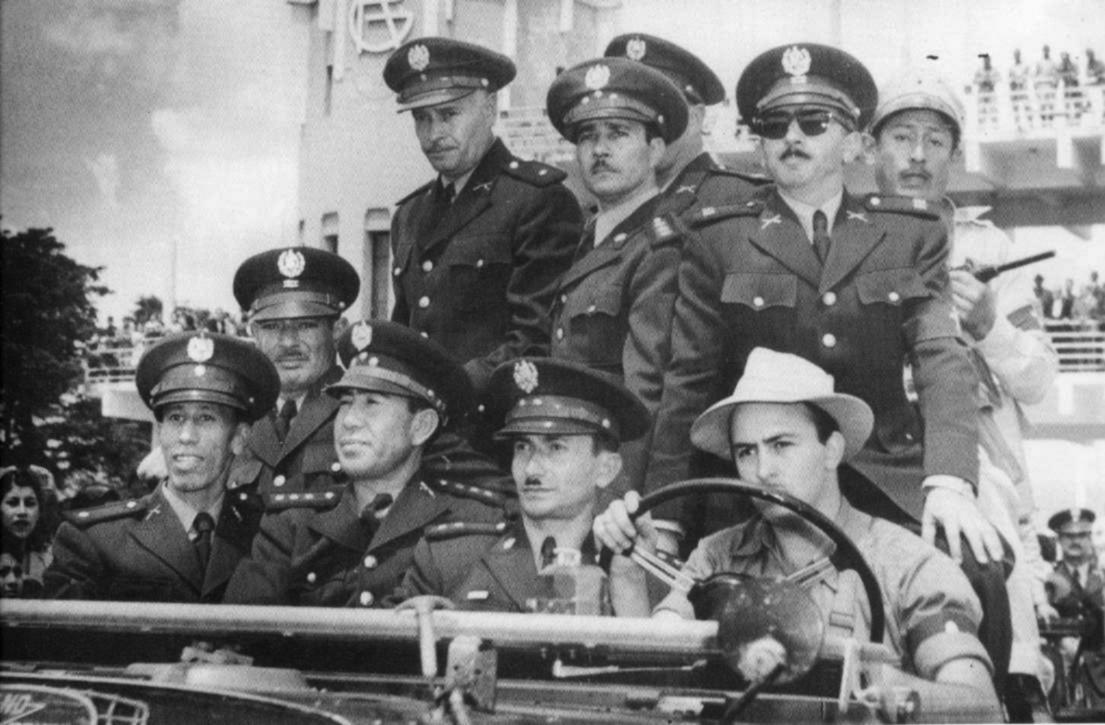
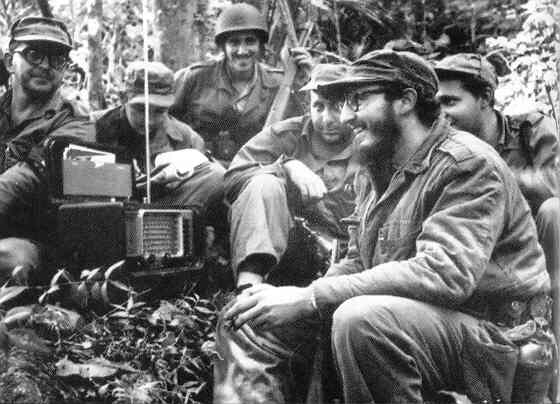
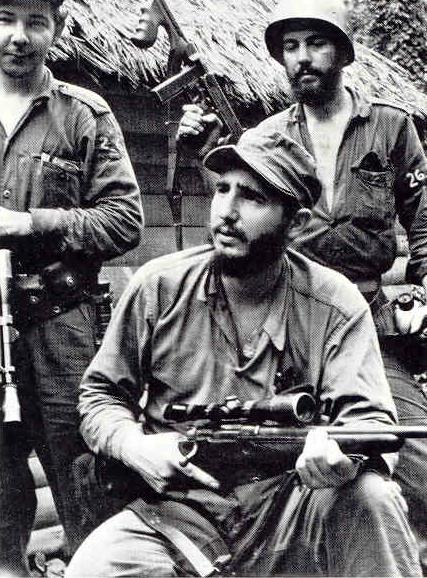
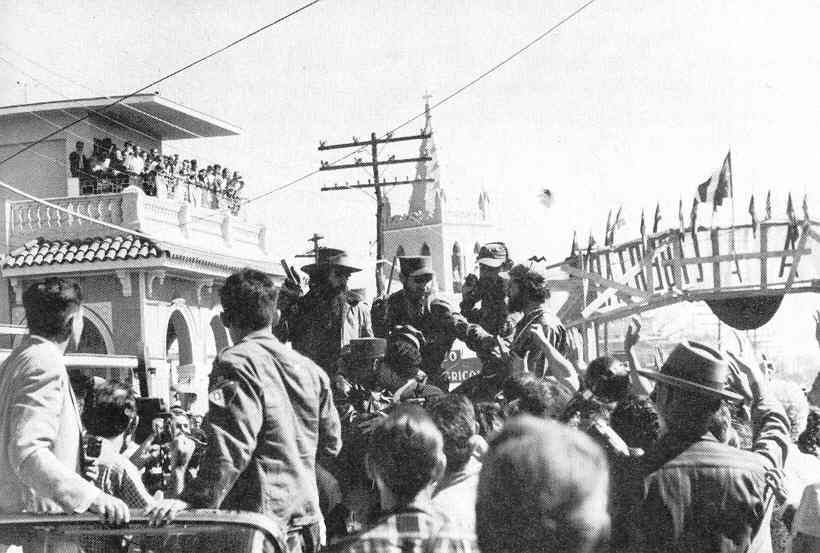
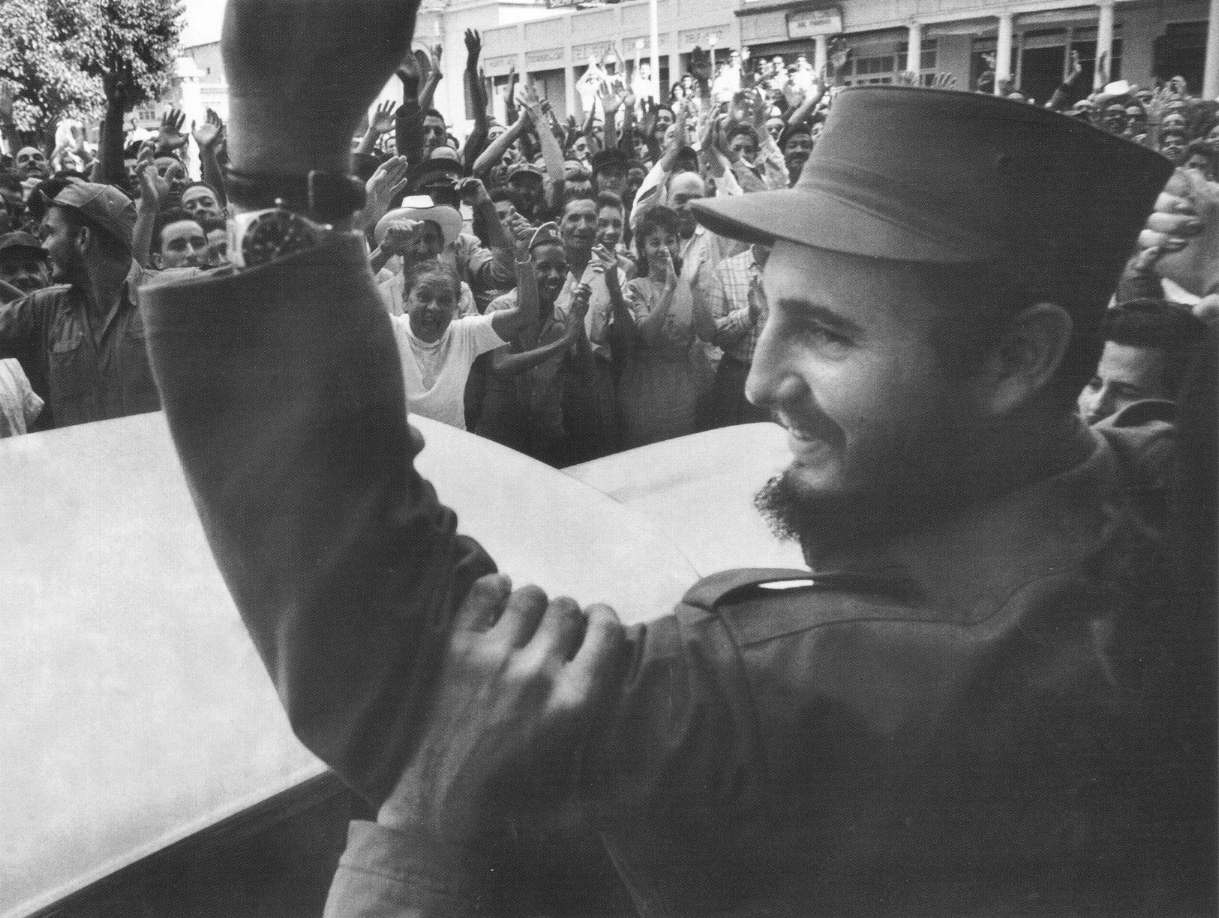
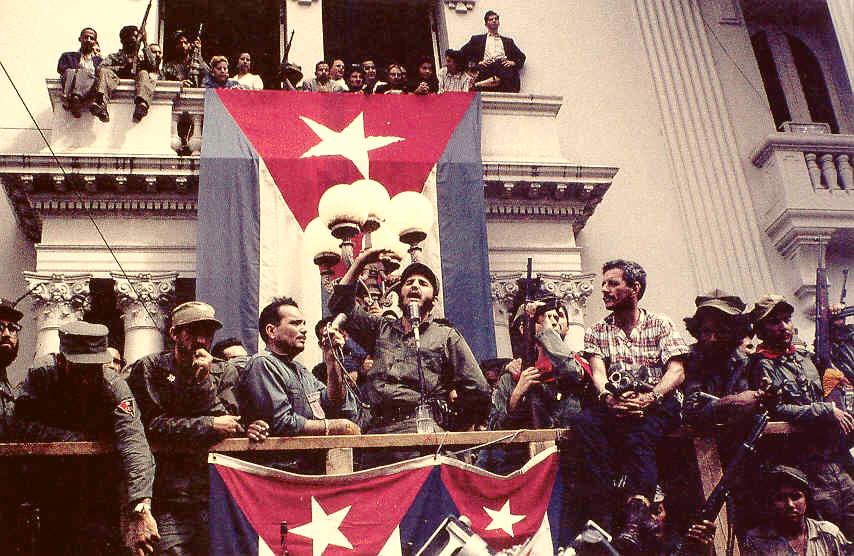
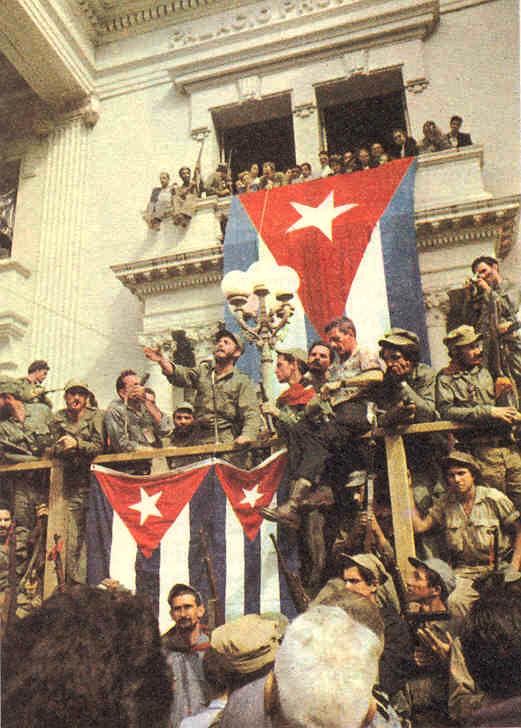
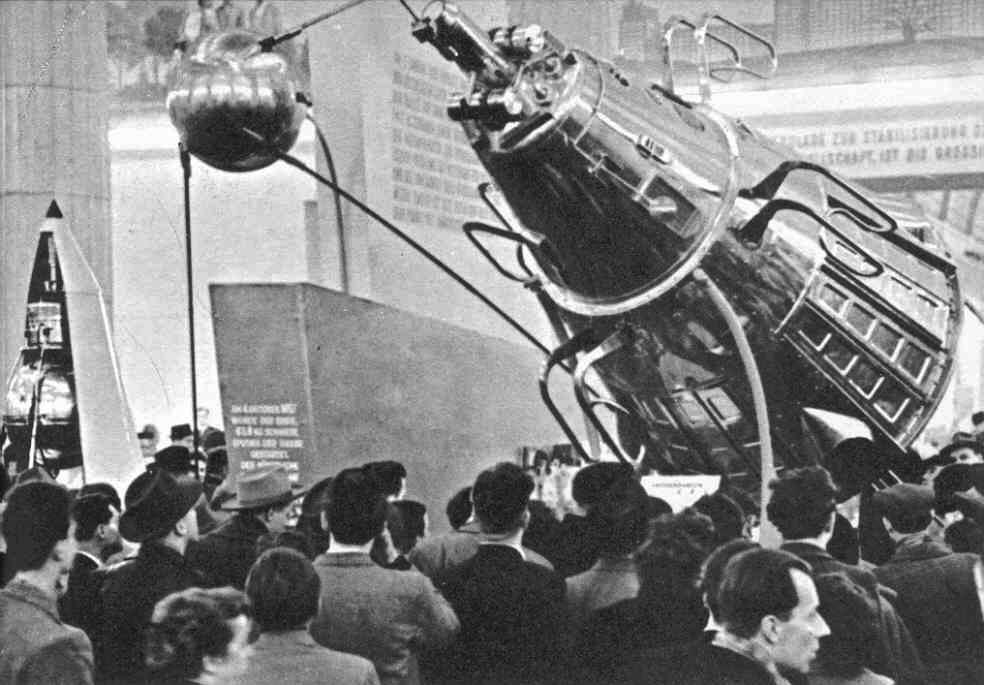
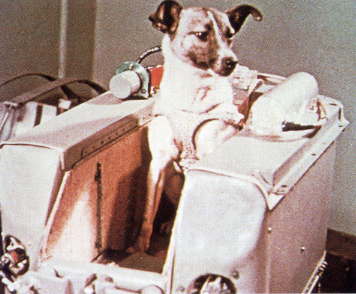
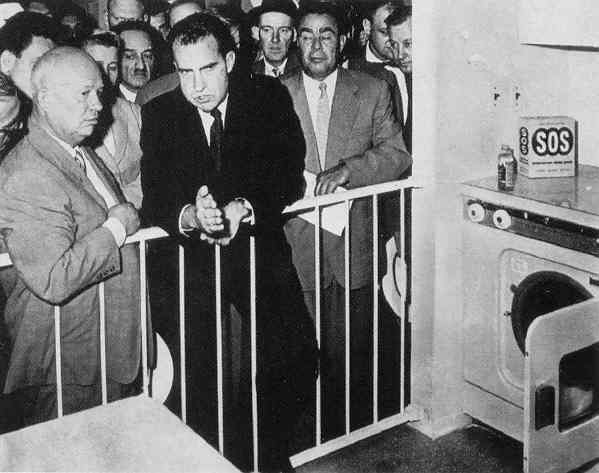
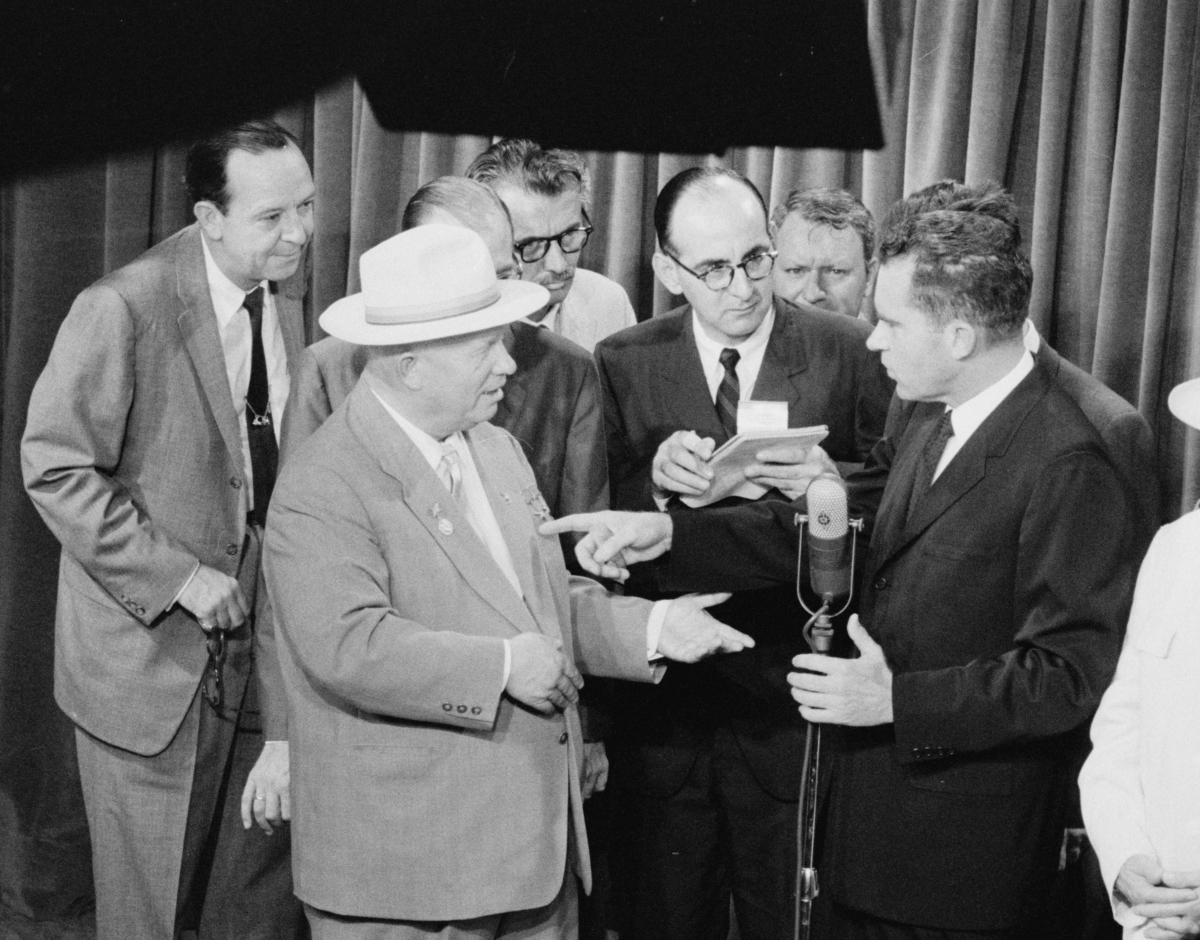
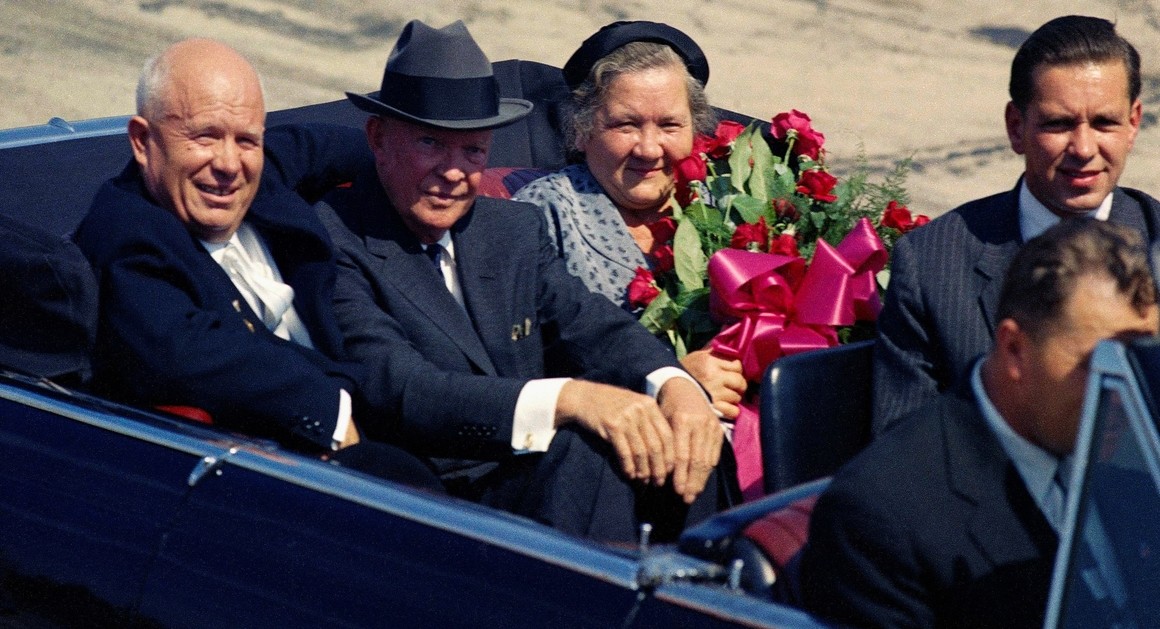
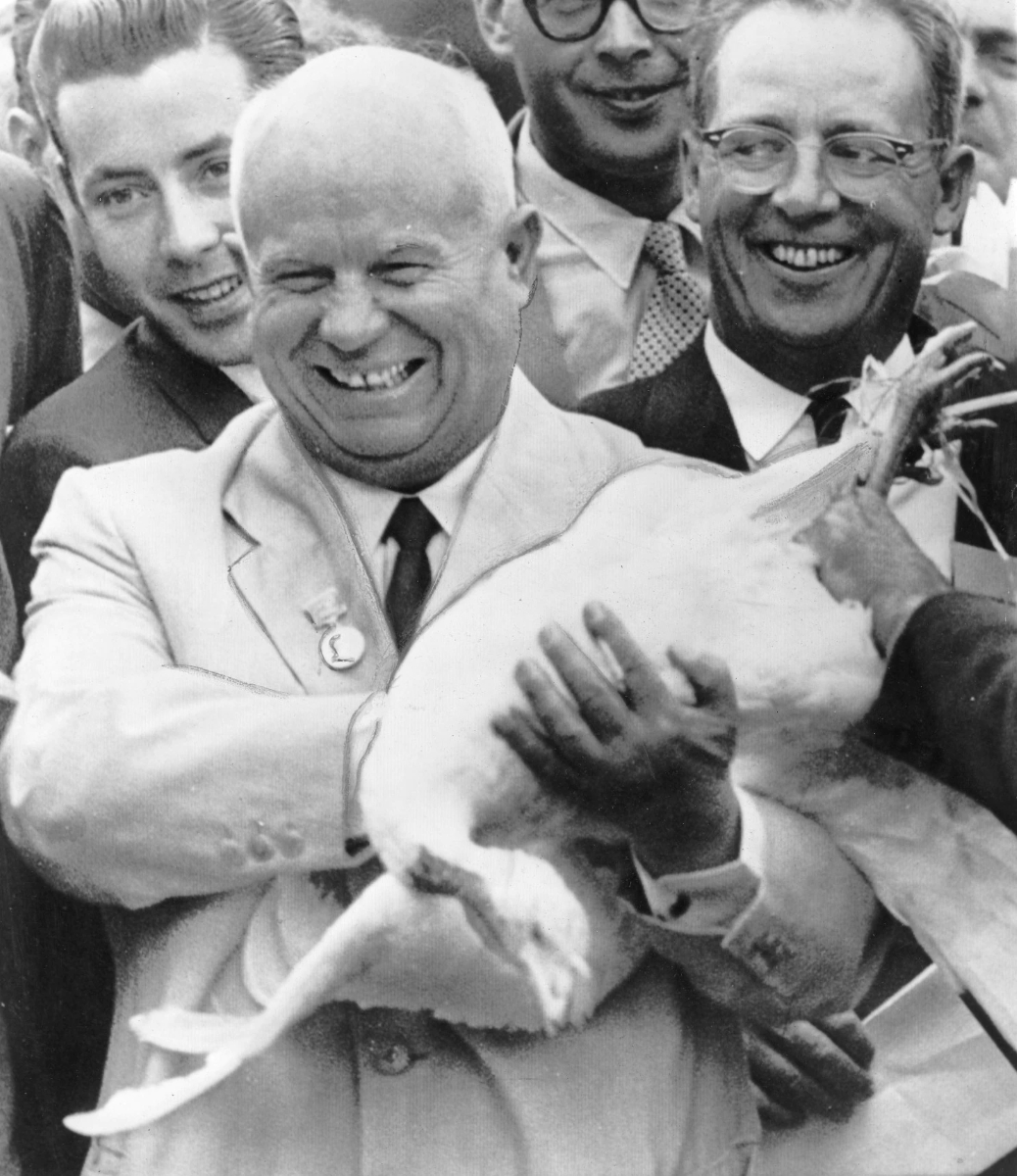
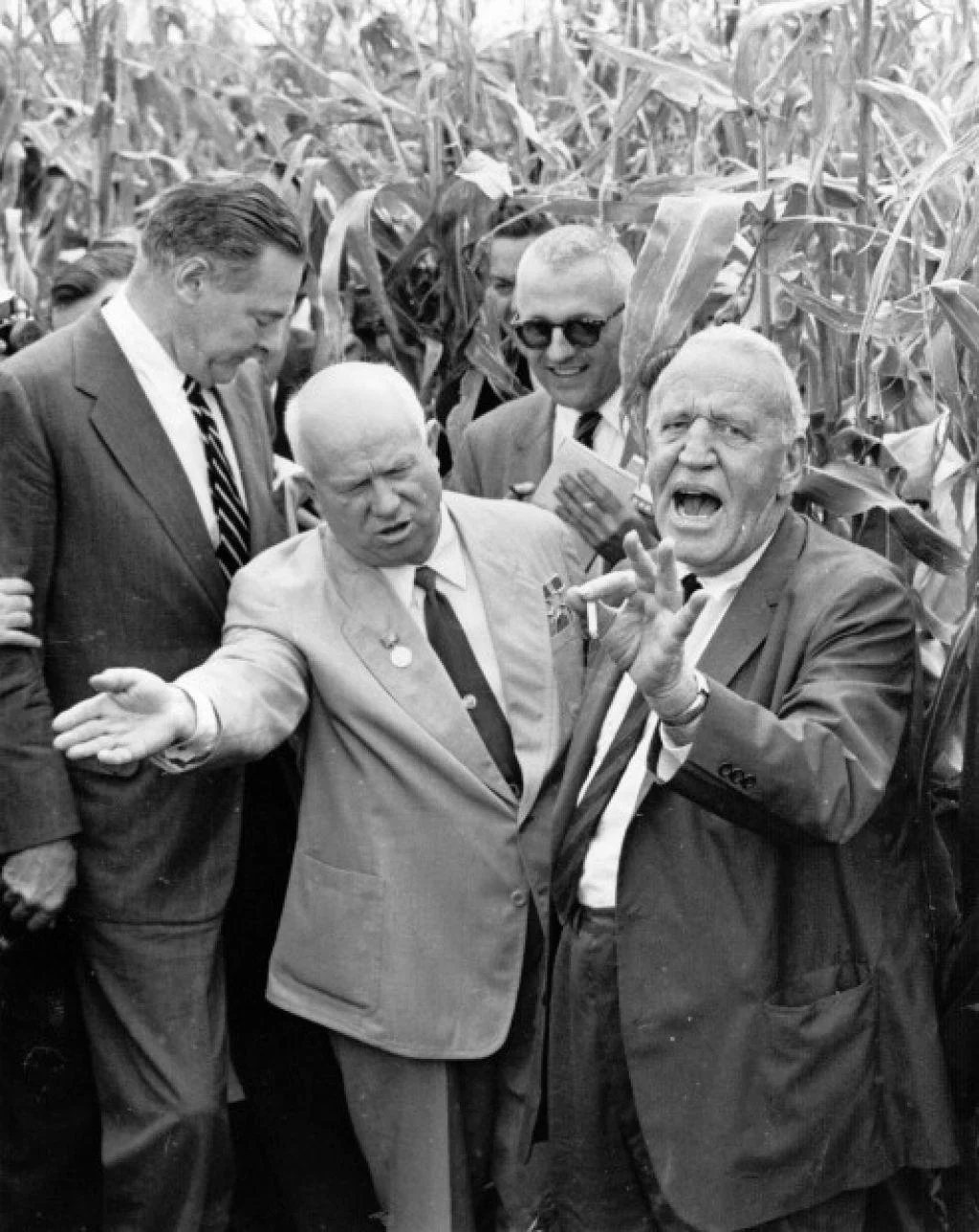
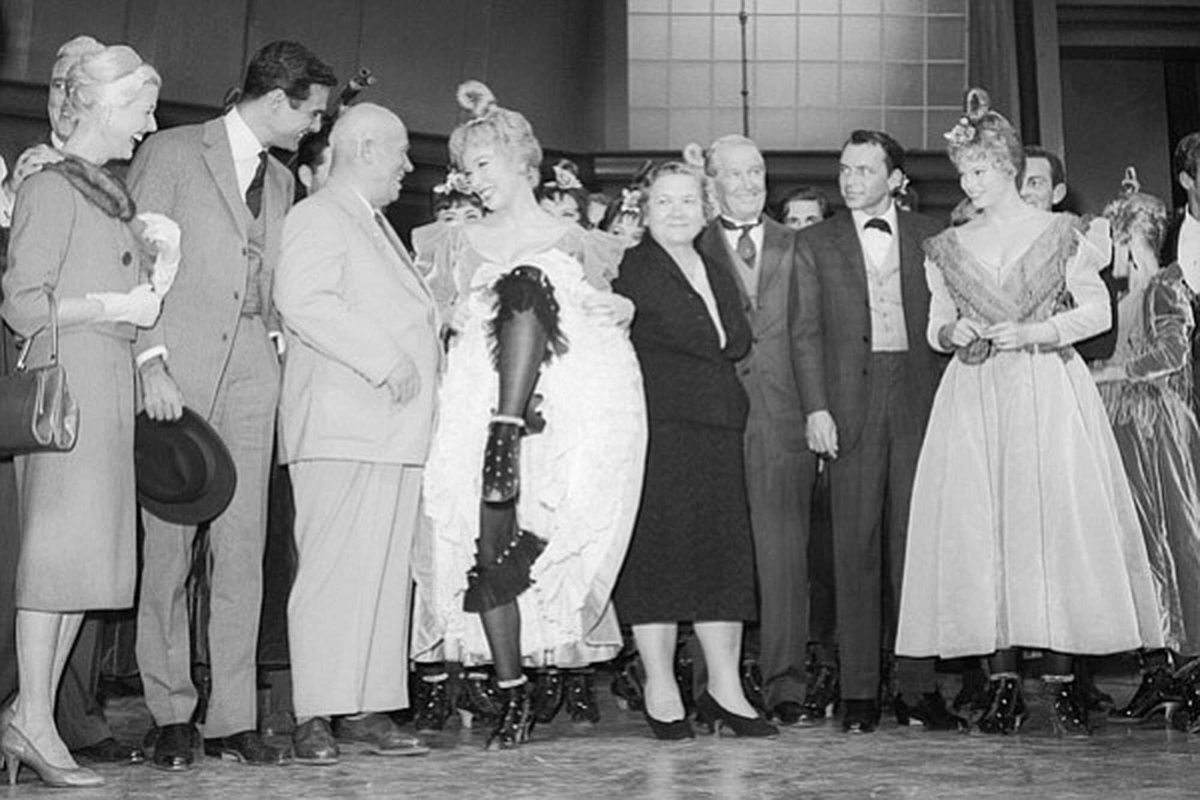

 Miles
H. Hodges
Miles
H. Hodges